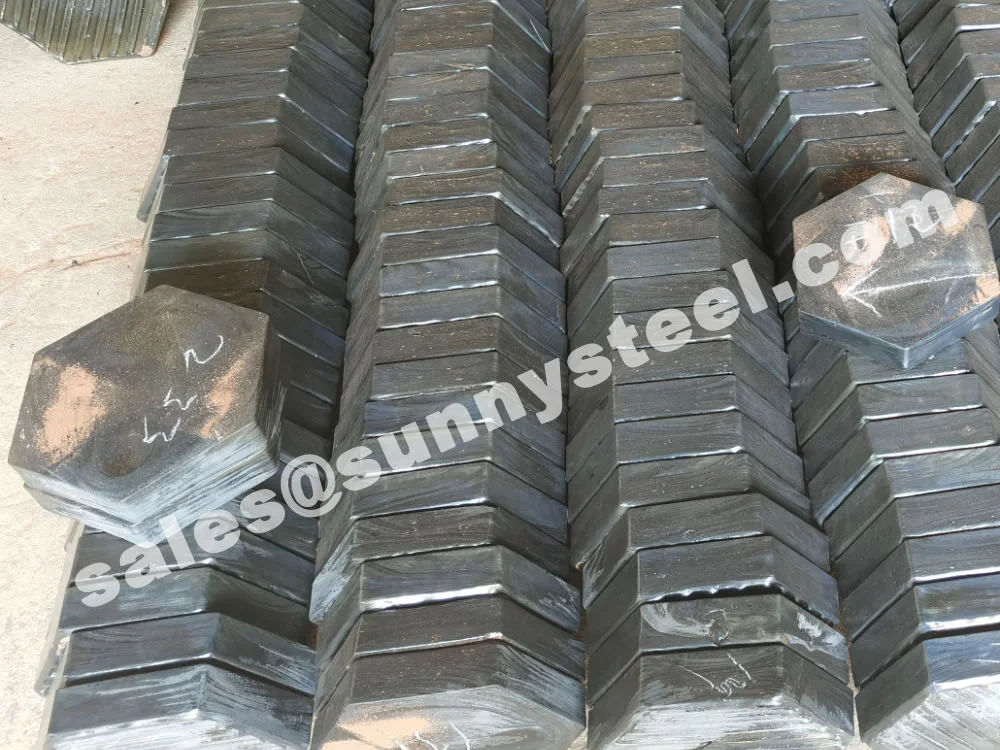
Interlocking Wear-resistant Tile
Precision hexagonal basalt slates offering superior abrasion, chemical, and thermal resistance with tight interlock for modular industrial linings.
Interlocking Wear-resistant Tile
Precision hexagonal basalt slates offering superior abrasion, chemical, and thermal resistance with tight interlock for modular industrial linings.
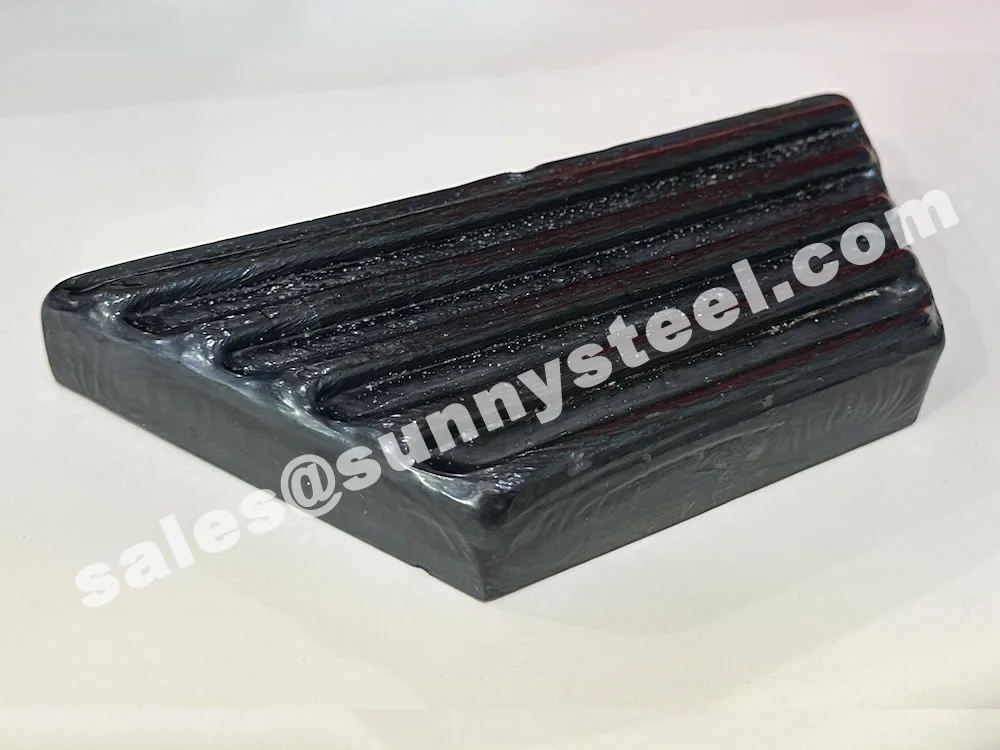
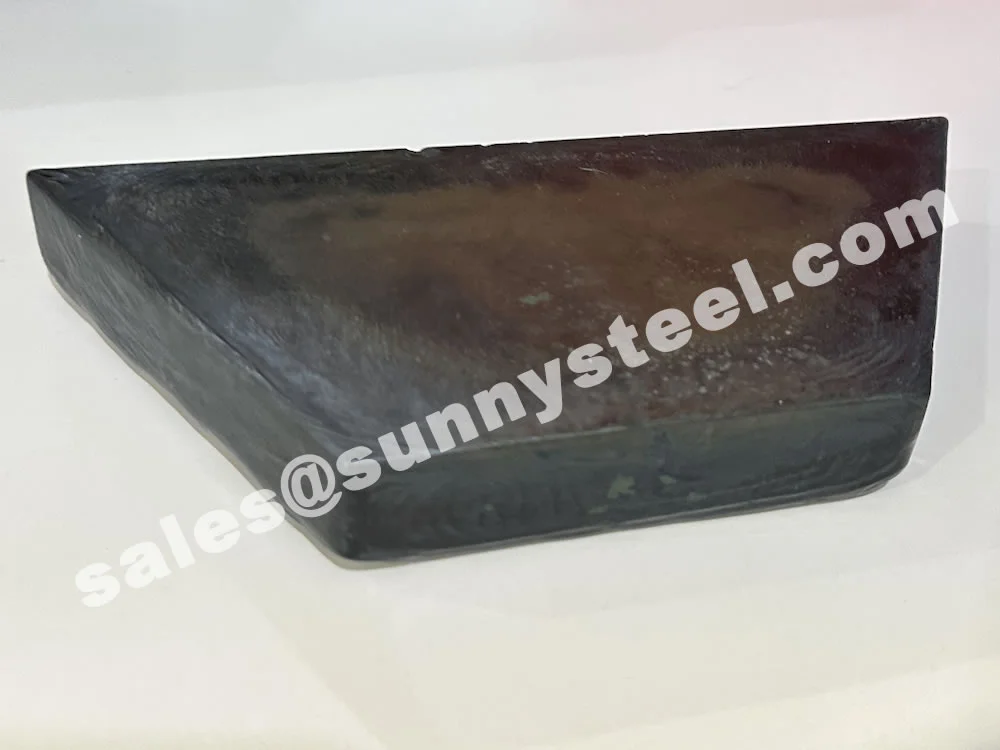
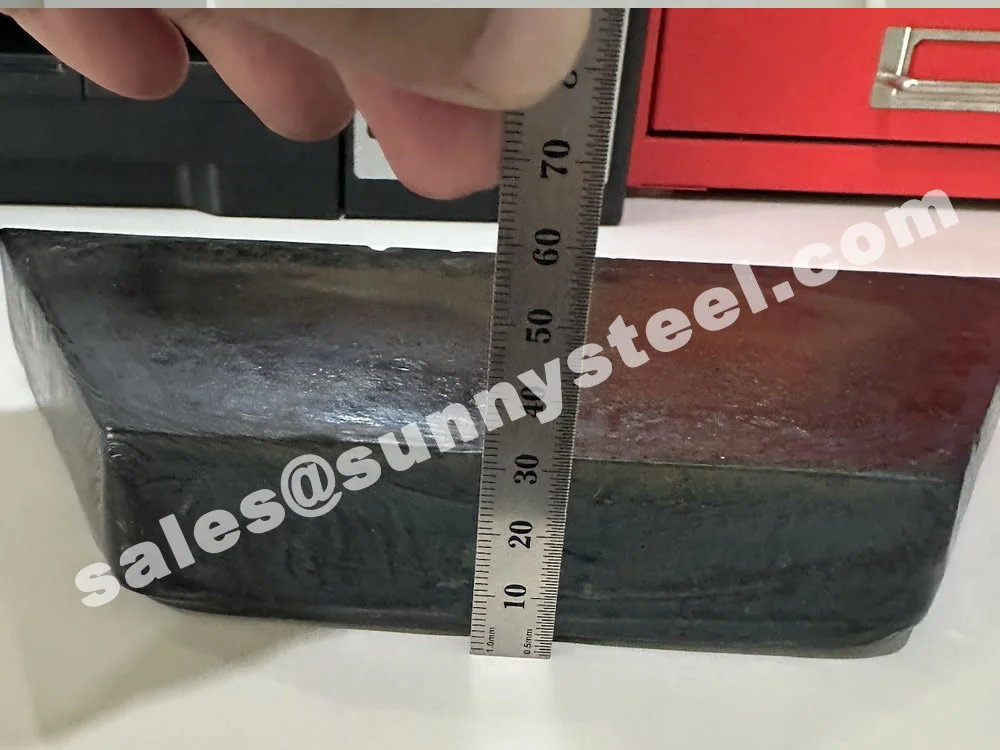
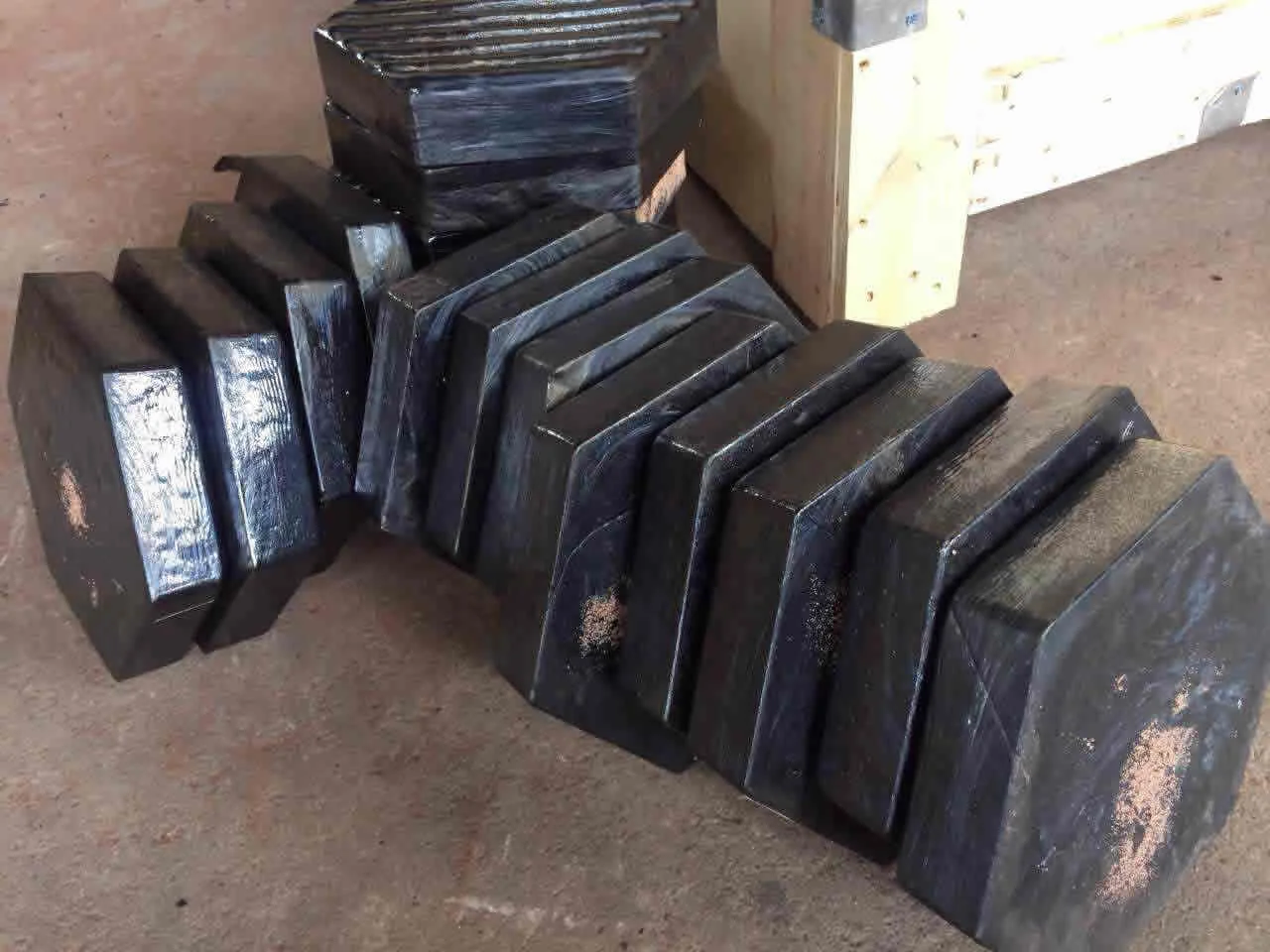
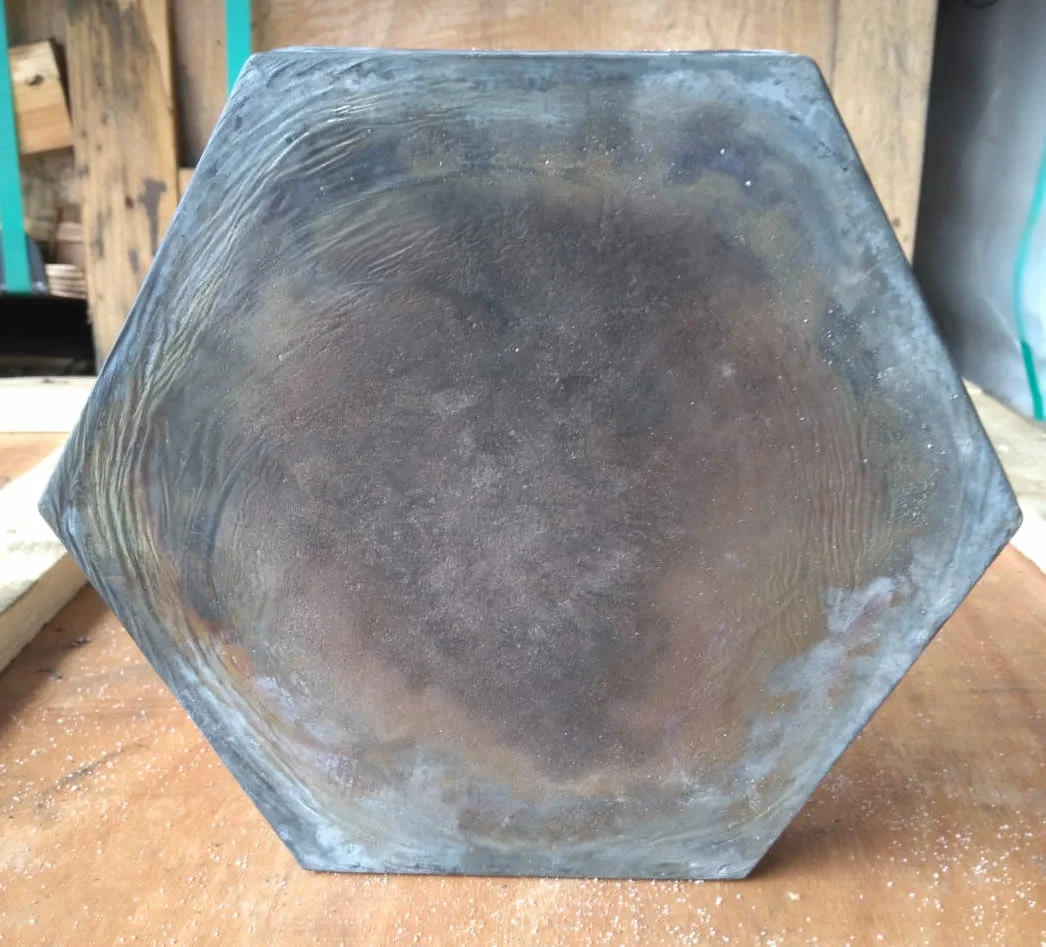
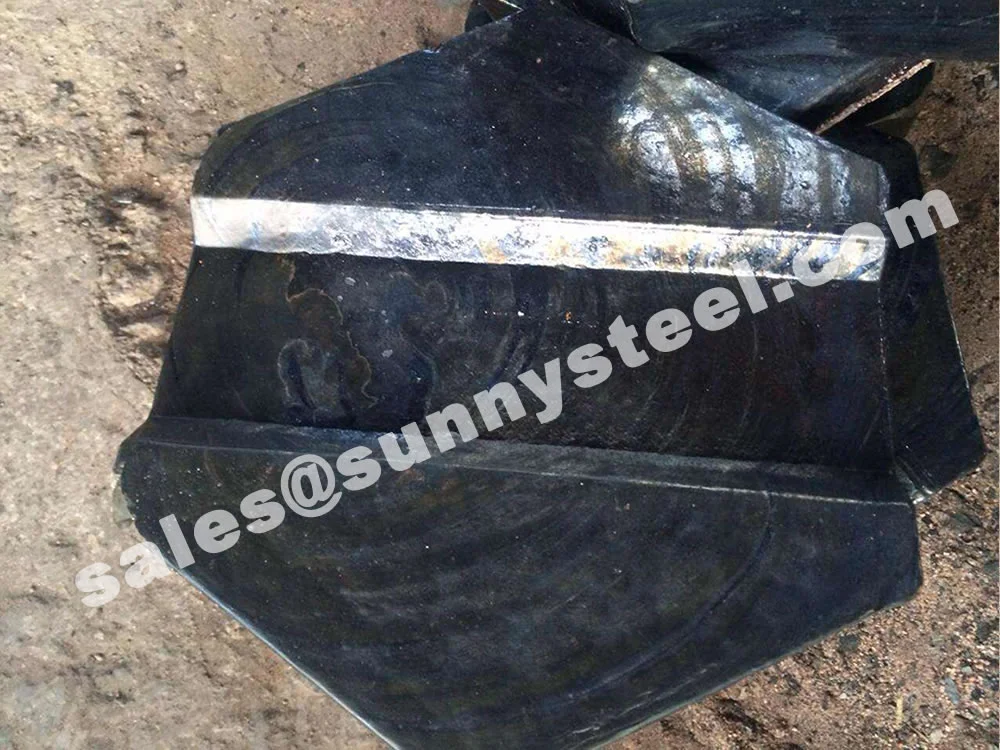
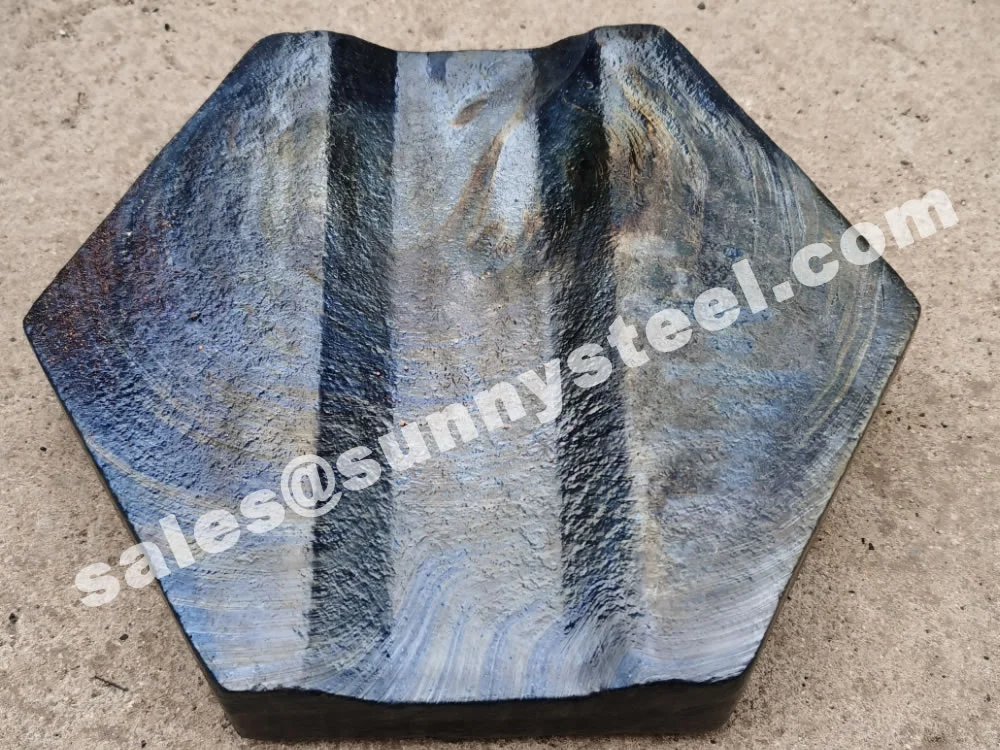
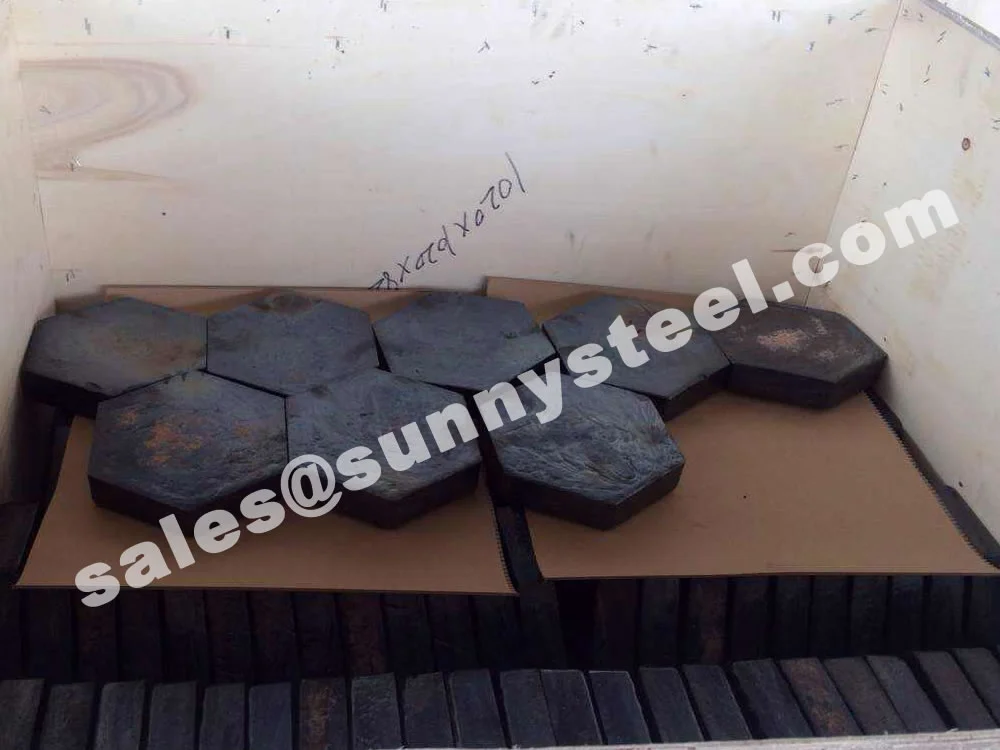
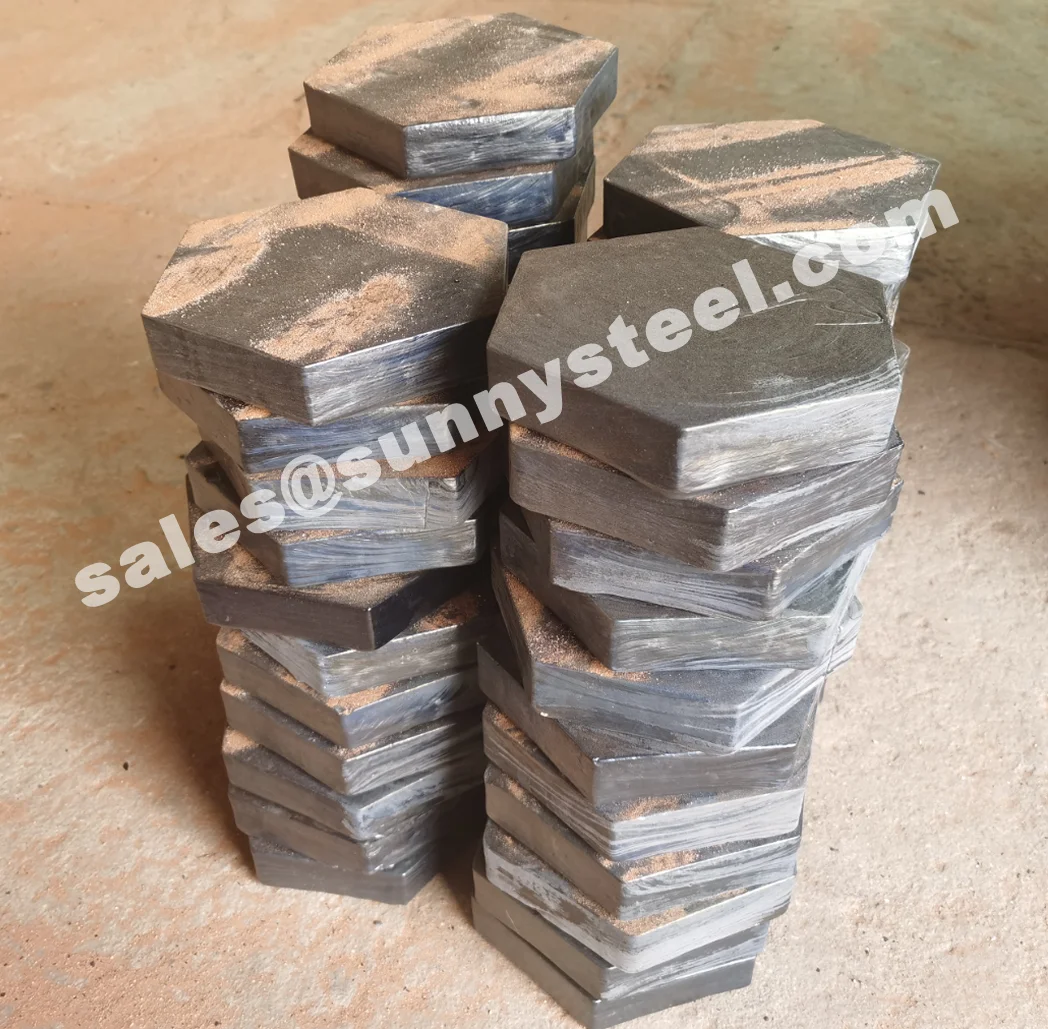
Hexagonal cast basalt slates are precision-molded industrial panels made by melting volcanic basalt rock (~1200–1300 °C) and casting it into six-sided shapes. This geometry enables tight interlocking, creating stable, seamless linings ideal for abrasion- and corrosion-prone conditions.
Hexagonal cast basalt slates offer interlocking strength, long-lasting wear performance, and a visually striking finish. Sunny Steel supports complete project delivery—including custom sizing, design layouts, and on-site installation guidance—to ensure efficient, durable linings in any industrial or architectural project.
What is Hexagonal cast basalt slate?
Hexagonal cast basalt slate is formed by melting basalt rock at a temperature of more than 1200°C and then casting it into molds in a hexagonal shape.
The unique hexagonal shape of this type of cast basalt tile provides a strong and durable surface that is ideal for use in a range of applications, including flooring, cladding, and paving. It can also be used in areas where high resistance to wear, chemical corrosion, and extreme temperatures is required.
Hexagonal cast basalt slate is known for its exceptional hardness, low water absorption, and resistance to abrasion and damage. It is also non-toxic, non-flammable and has excellent insulating properties. Due to these qualities, it is suitable for use in a variety of industries, such as mining, construction, and transportation.
In addition, hexagonal cast basalt slate is available in a range of colors and sizes, making it easy to customize to fit specific project requirements. It is also easy to maintain and clean, making it a practical and cost-effective solution for a wide variety of applications.
Hexagonal cast basalt slate is a versatile material that can be used in a variety of applications. Its durability and natural texture make it ideal for exterior cladding, paving, and landscaping projects. Its hexagonal shape creates an attractive and modern pattern that can be used on floors, walls, and even ceilings.
In commercial settings, hexagonal cast basalt slate can be used in high traffic areas such as lobbies, corridors, and atriums. It is also commonly used in retail spaces and restaurants to provide a unique and inviting atmosphere. The natural texture of the slate also provides slip resistance, making it ideal for outdoor walkways and pool areas.
In residential settings, hexagonal cast basalt slate can be used in both indoor and outdoor areas. It is commonly used for patio flooring, pool surrounds, and garden pathways. Its natural texture and color also make it a popular choice for accent walls and fireplace surrounds.
Overall, hexagonal cast basalt slate is a versatile and durable material that can be used in a variety of applications. Its natural beauty and unique texture make it a popular choice for both commercial and residential projects.
Inspection cast basalt tiles offer excellent abrasion, chemical, and impact resistance, ensuring long service life for floors, chutes, and lining surfaces.
Inspection cast basalt tiles are high-performance ceramic tiles made from natural volcanic rock that has been melted and cast into precise shapes. After controlled cooling, the material forms a crystalline structure with exceptional hardness (Mohs 8), high compressive strength, and outstanding chemical stability.
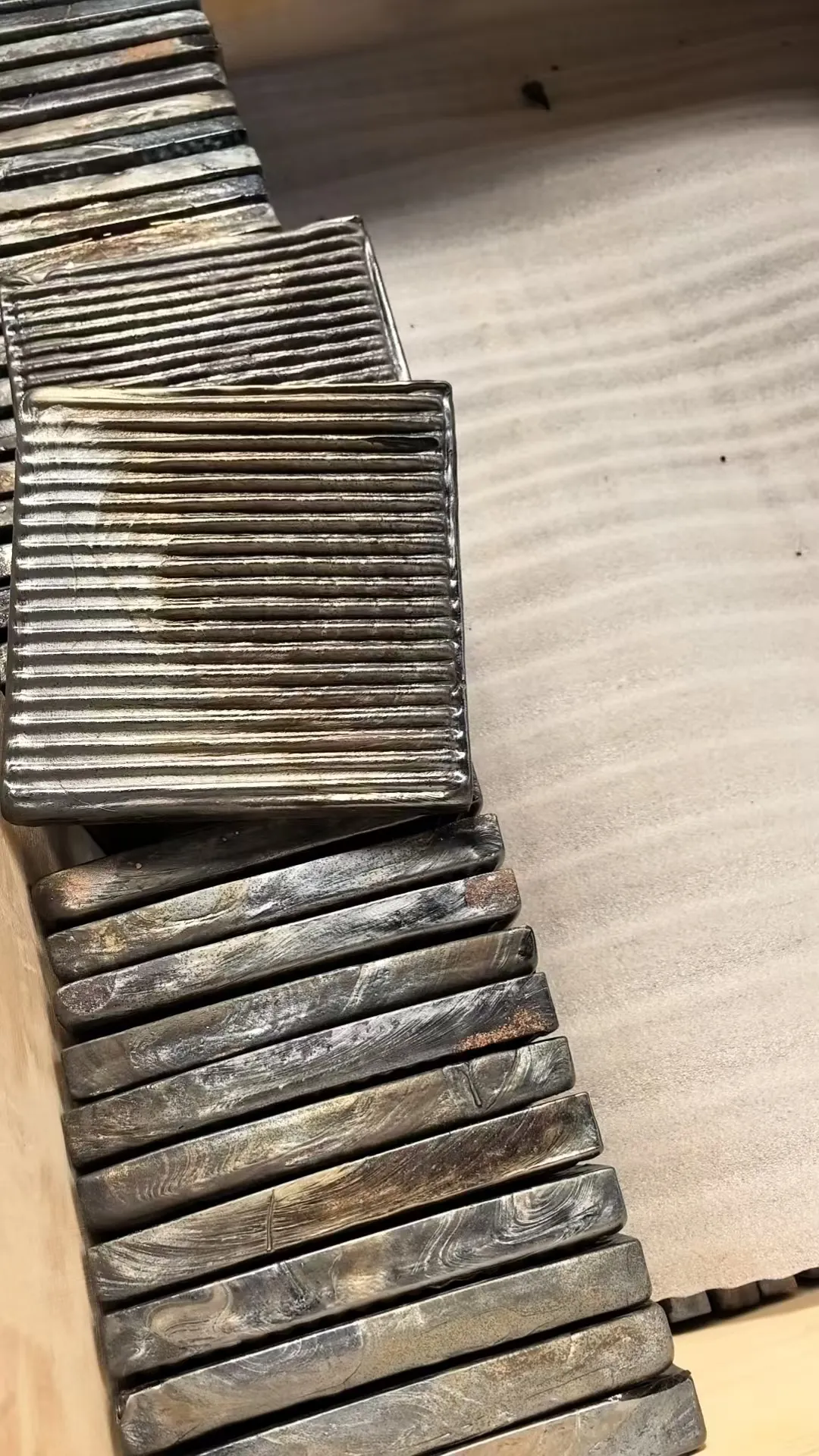
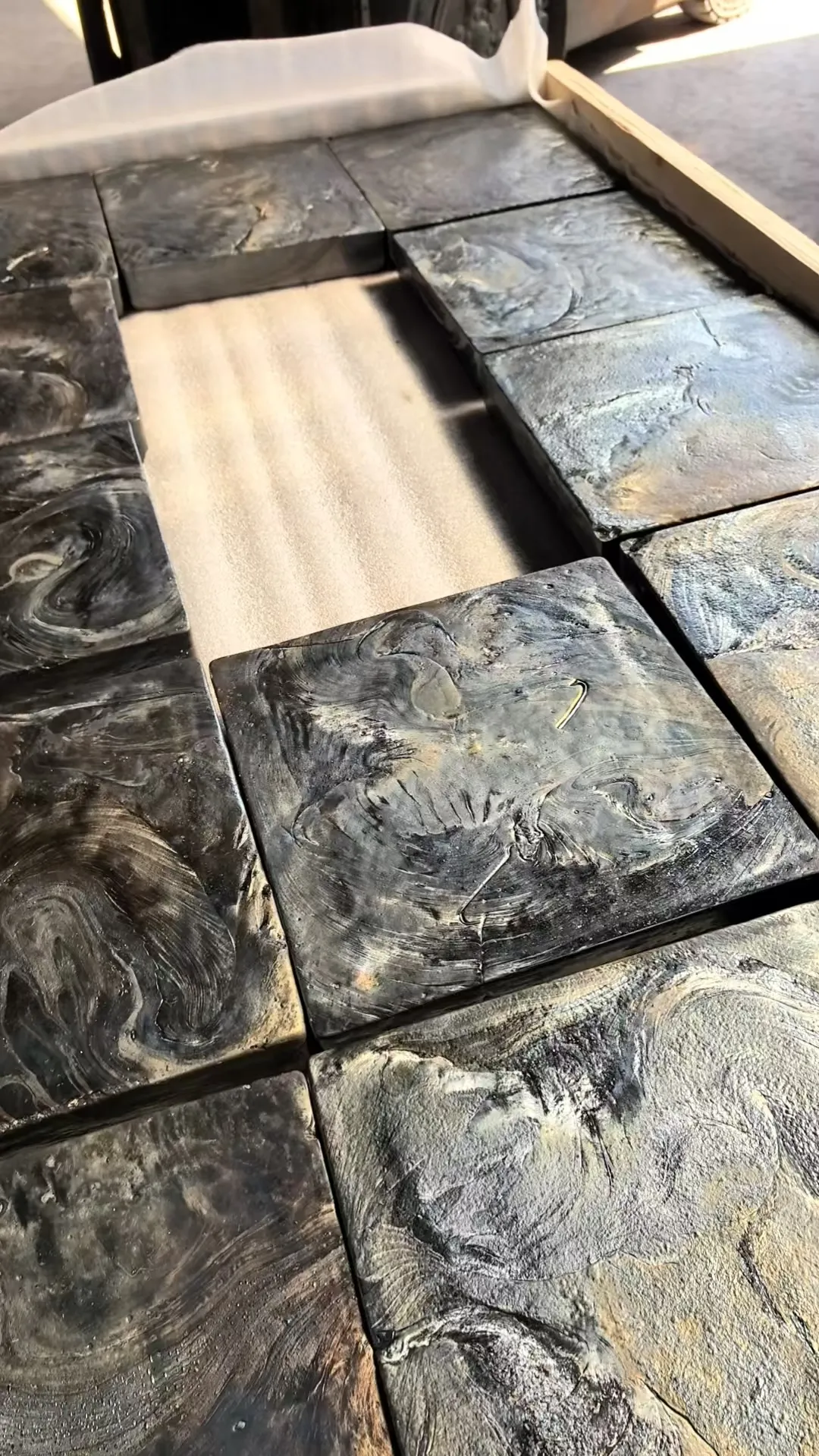
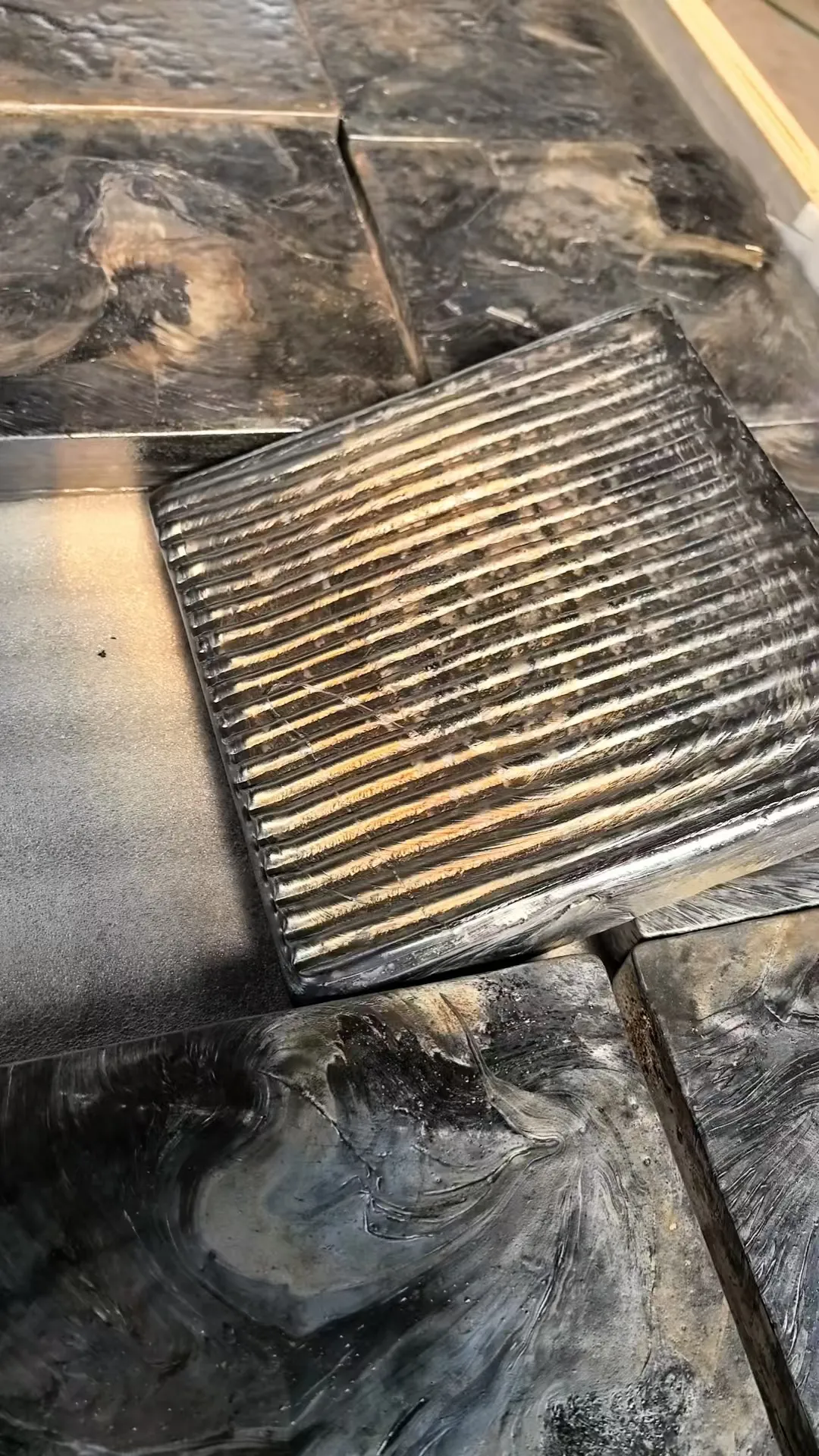
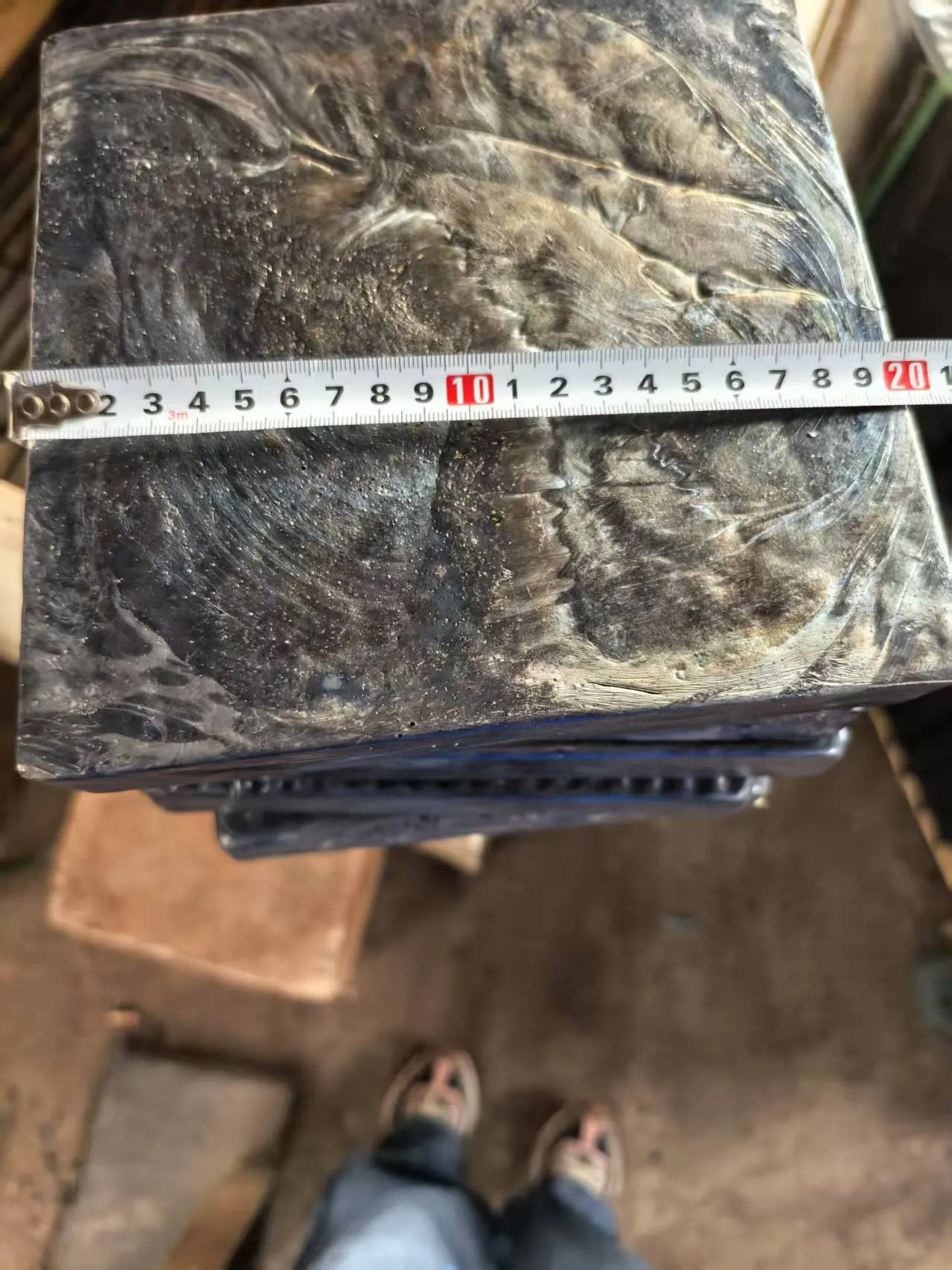
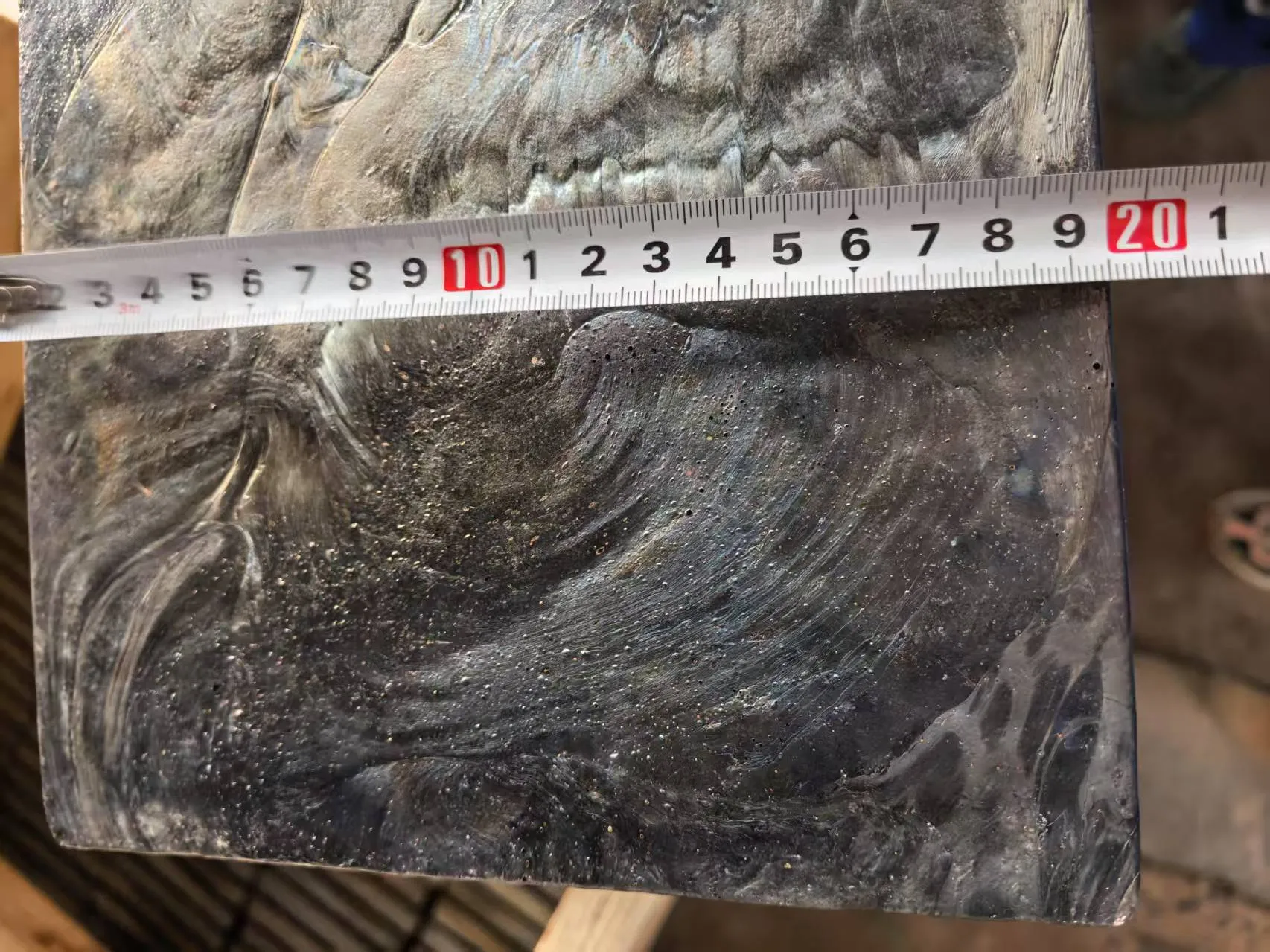
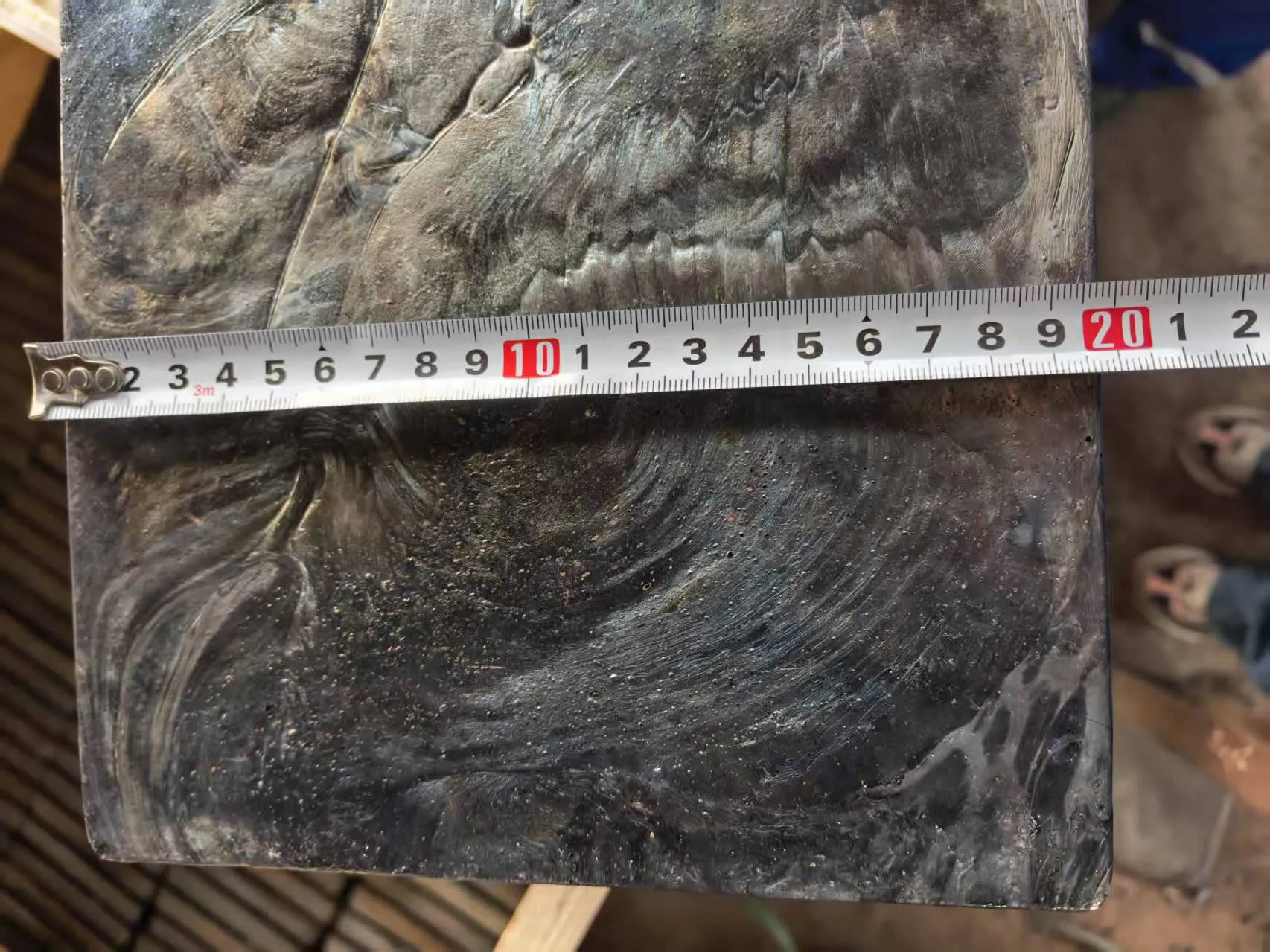
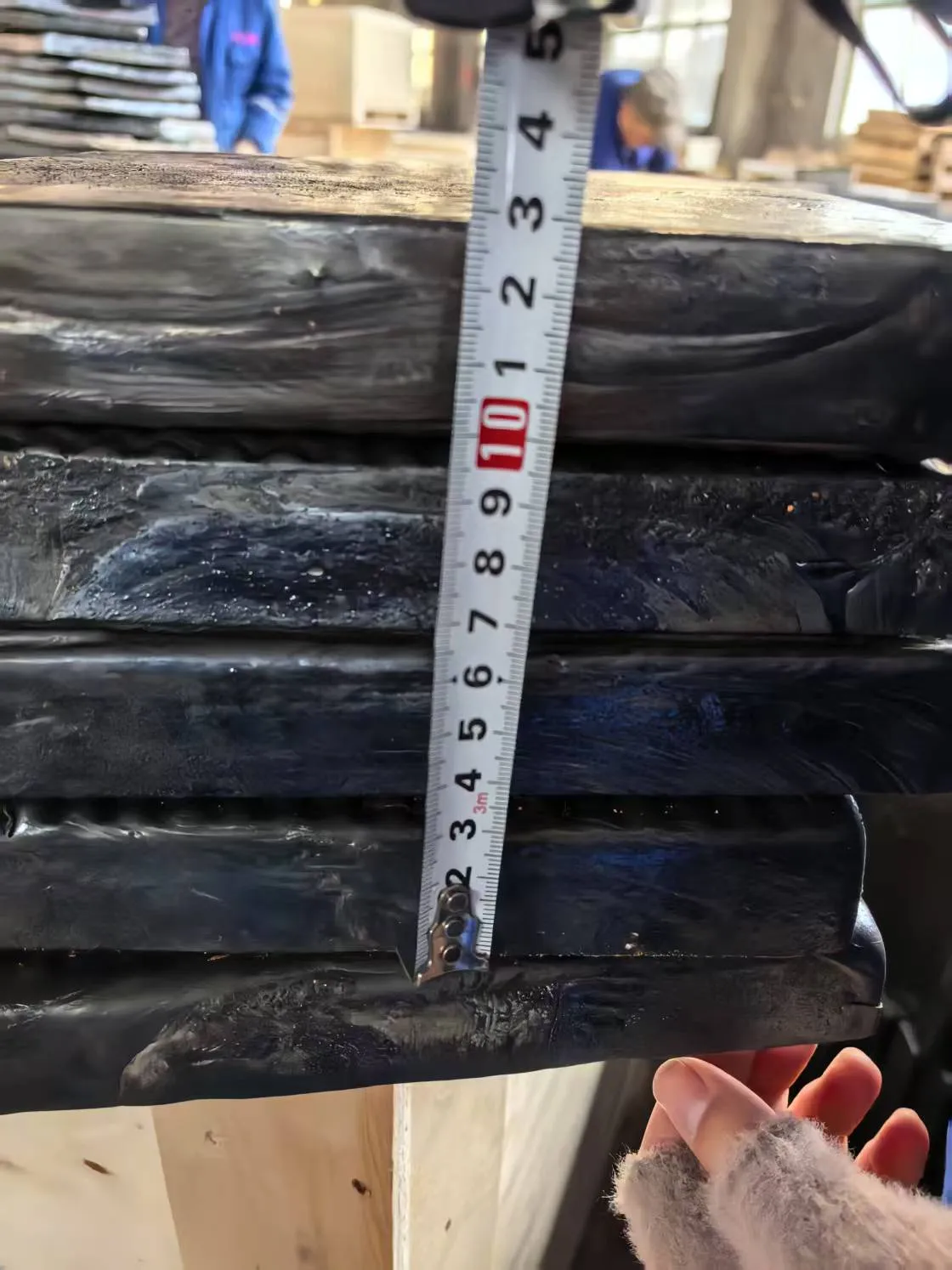
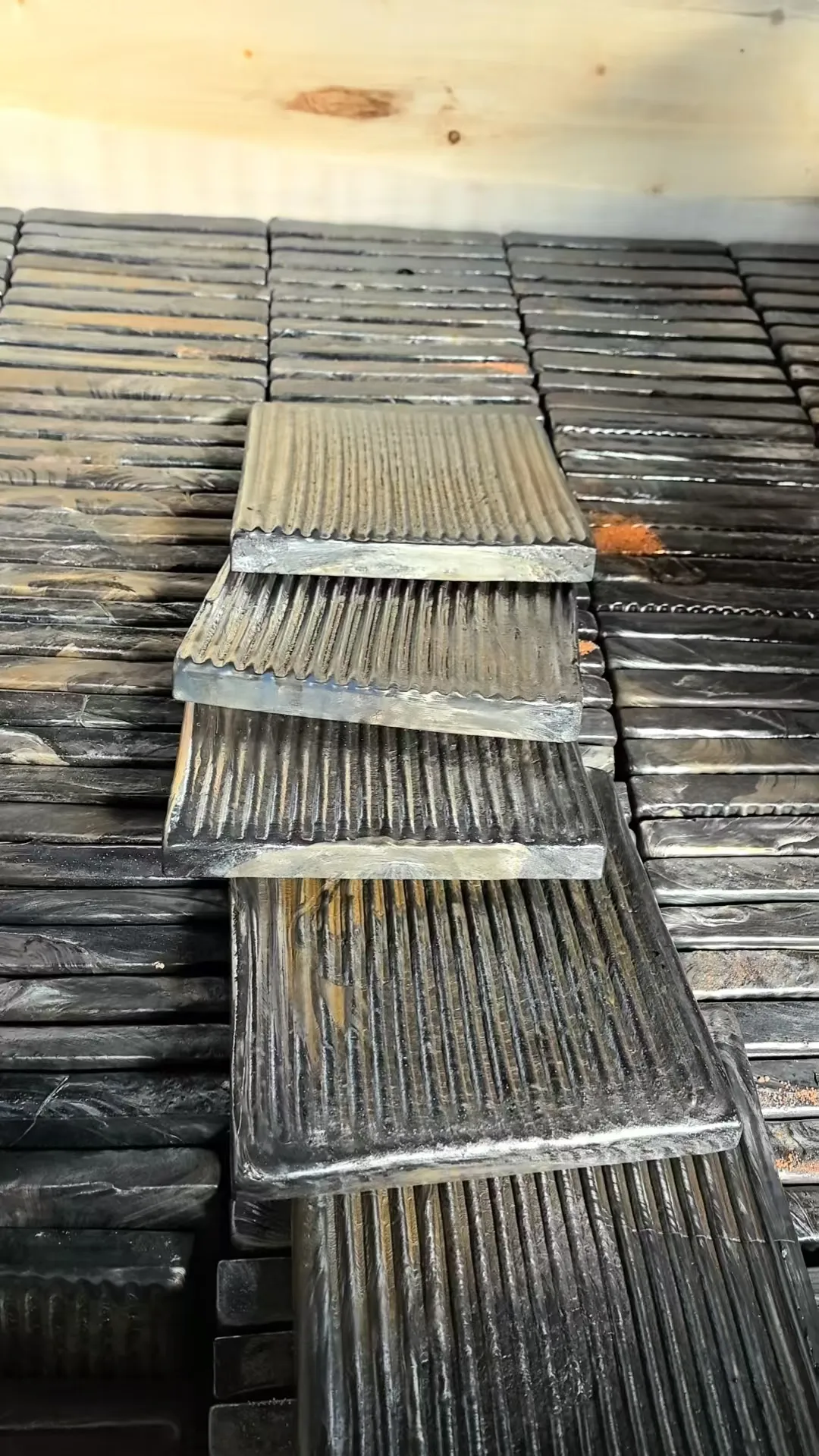
Used for Automotive Brake Testing Grounds
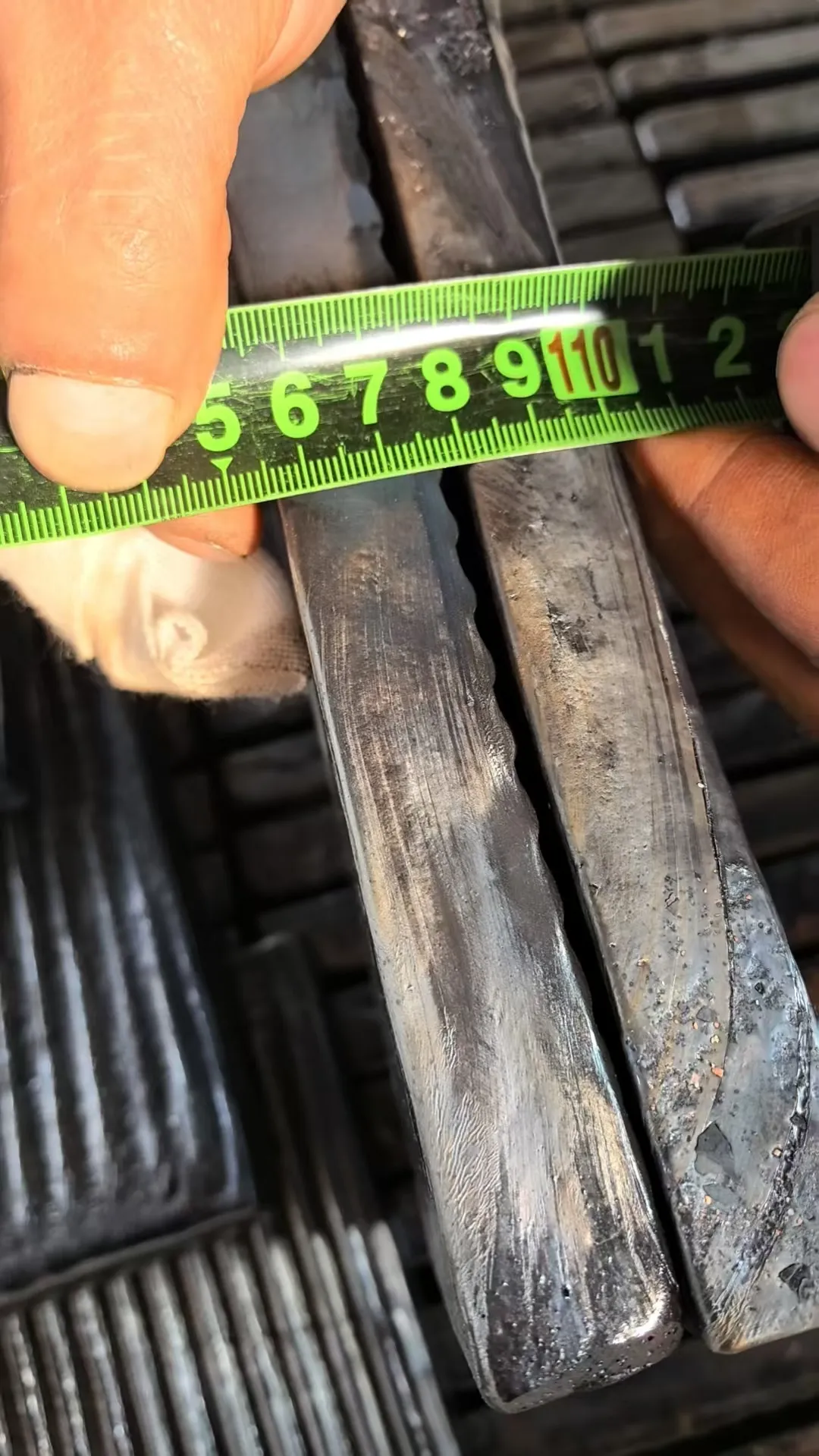
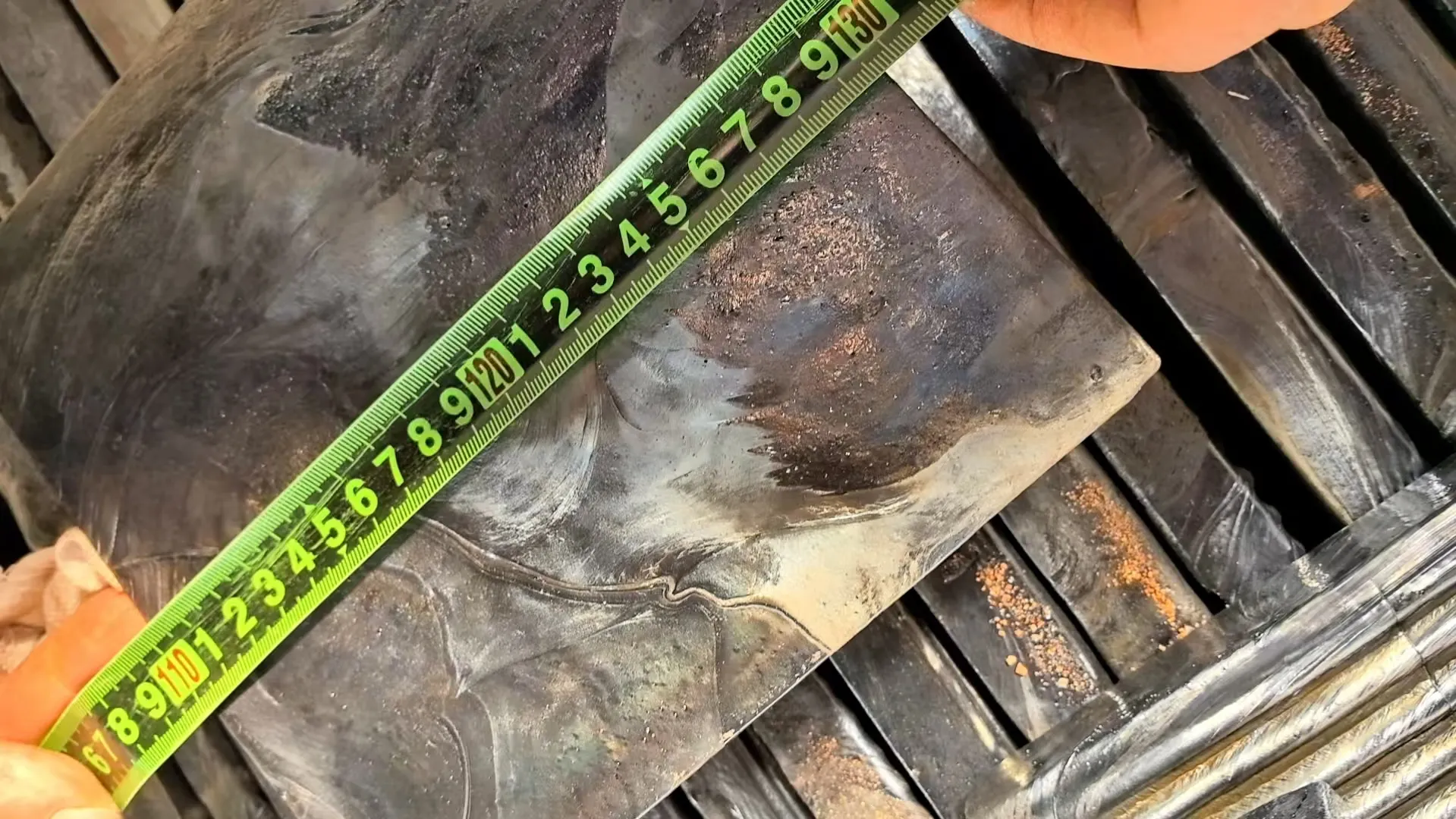
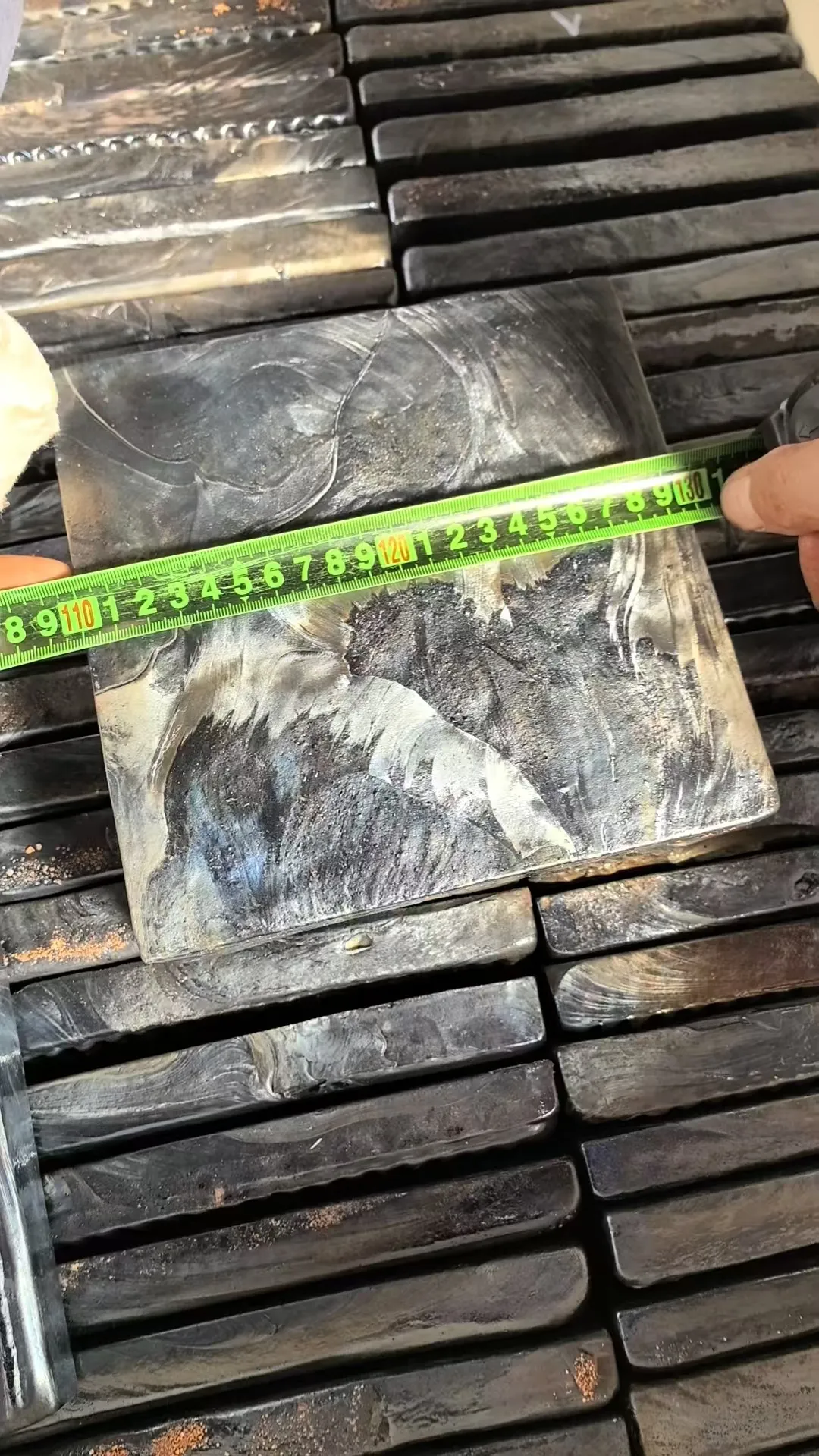
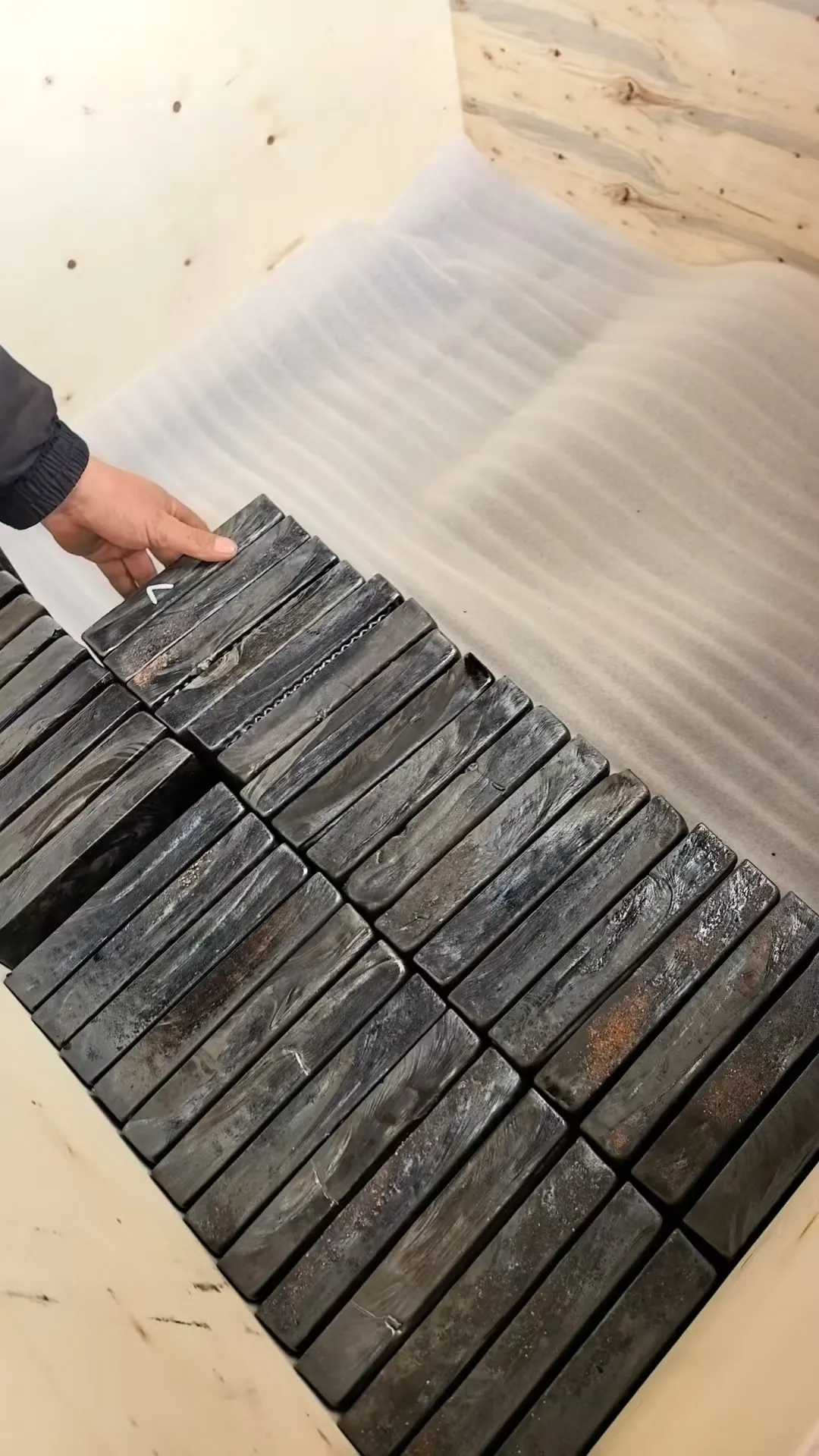
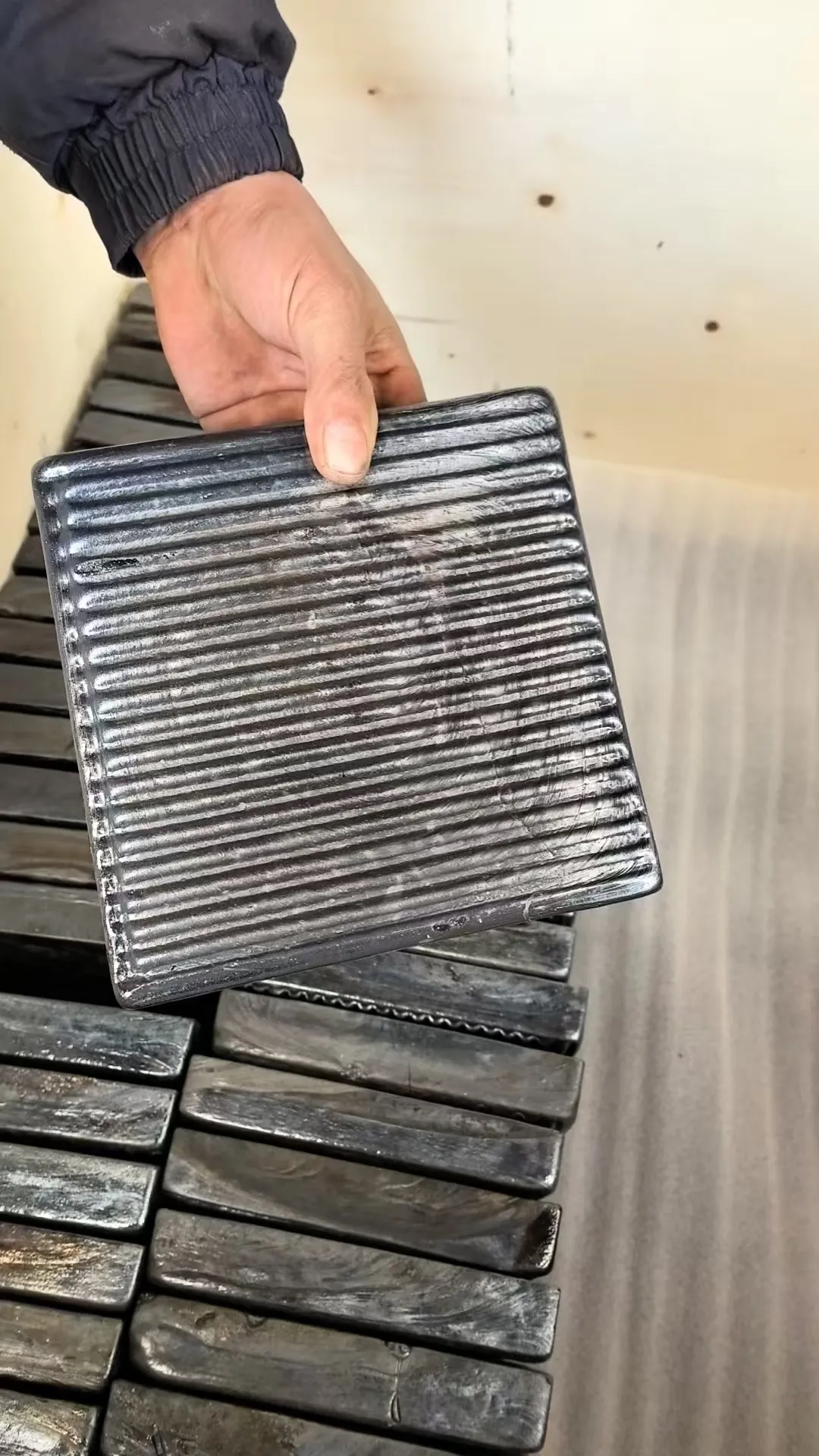
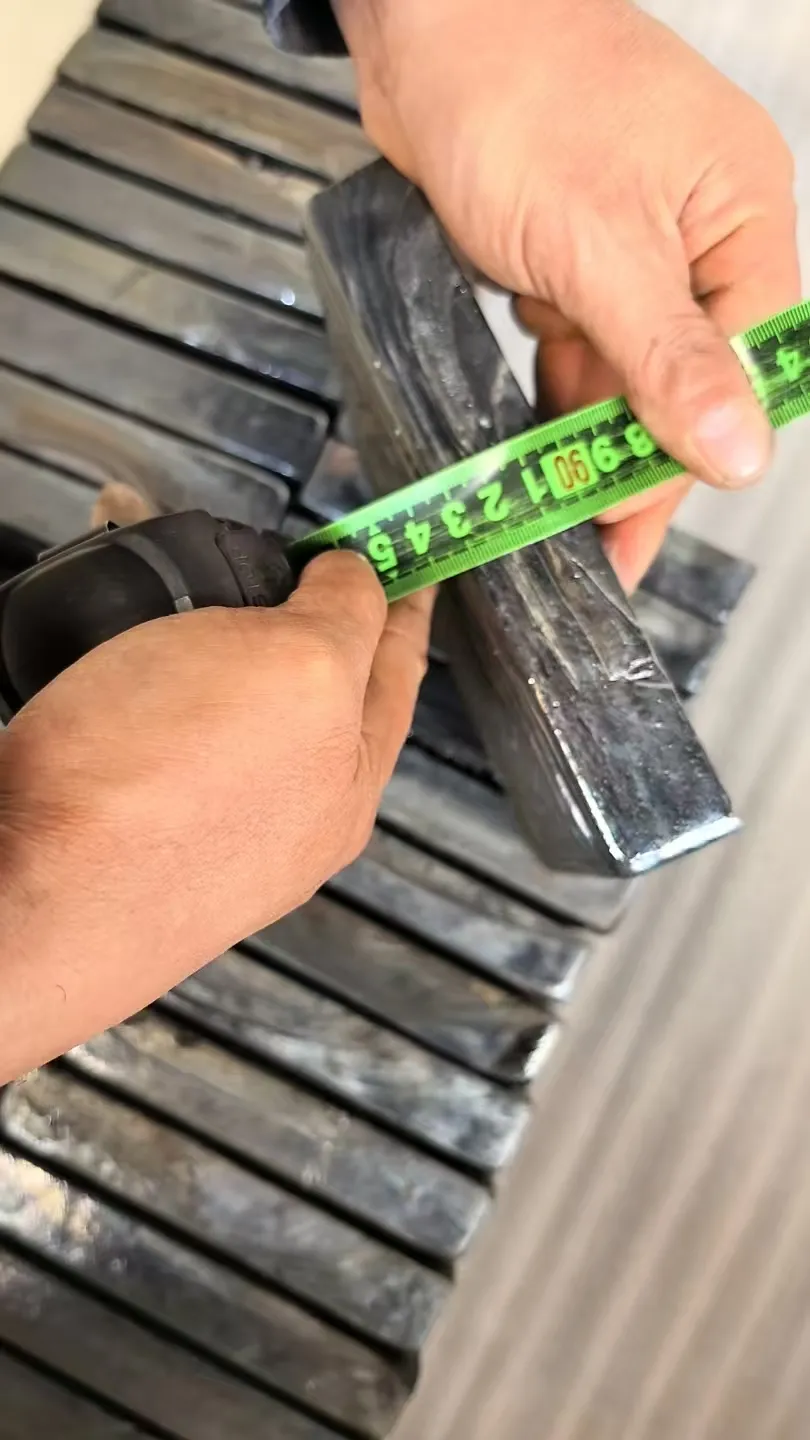
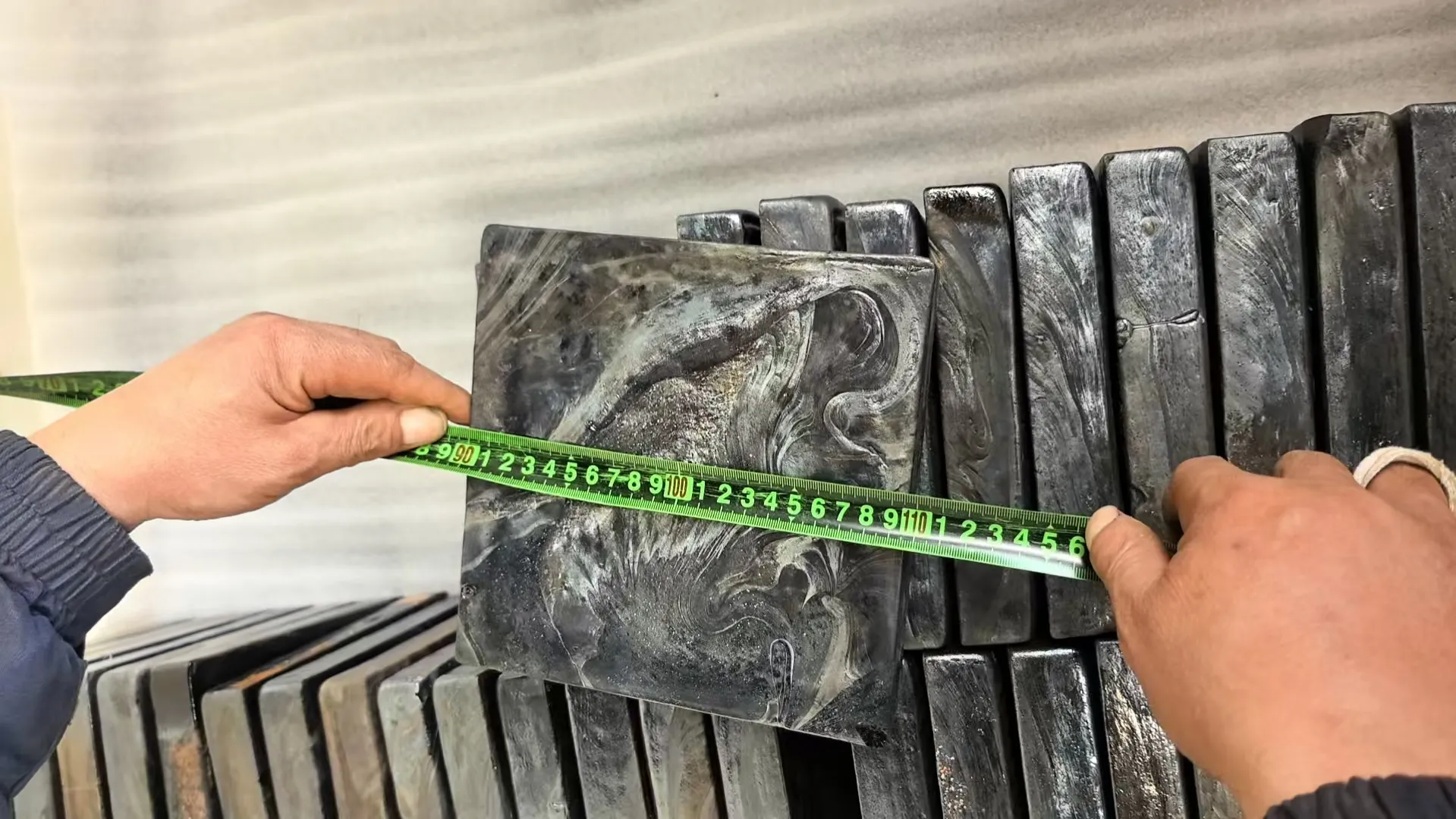
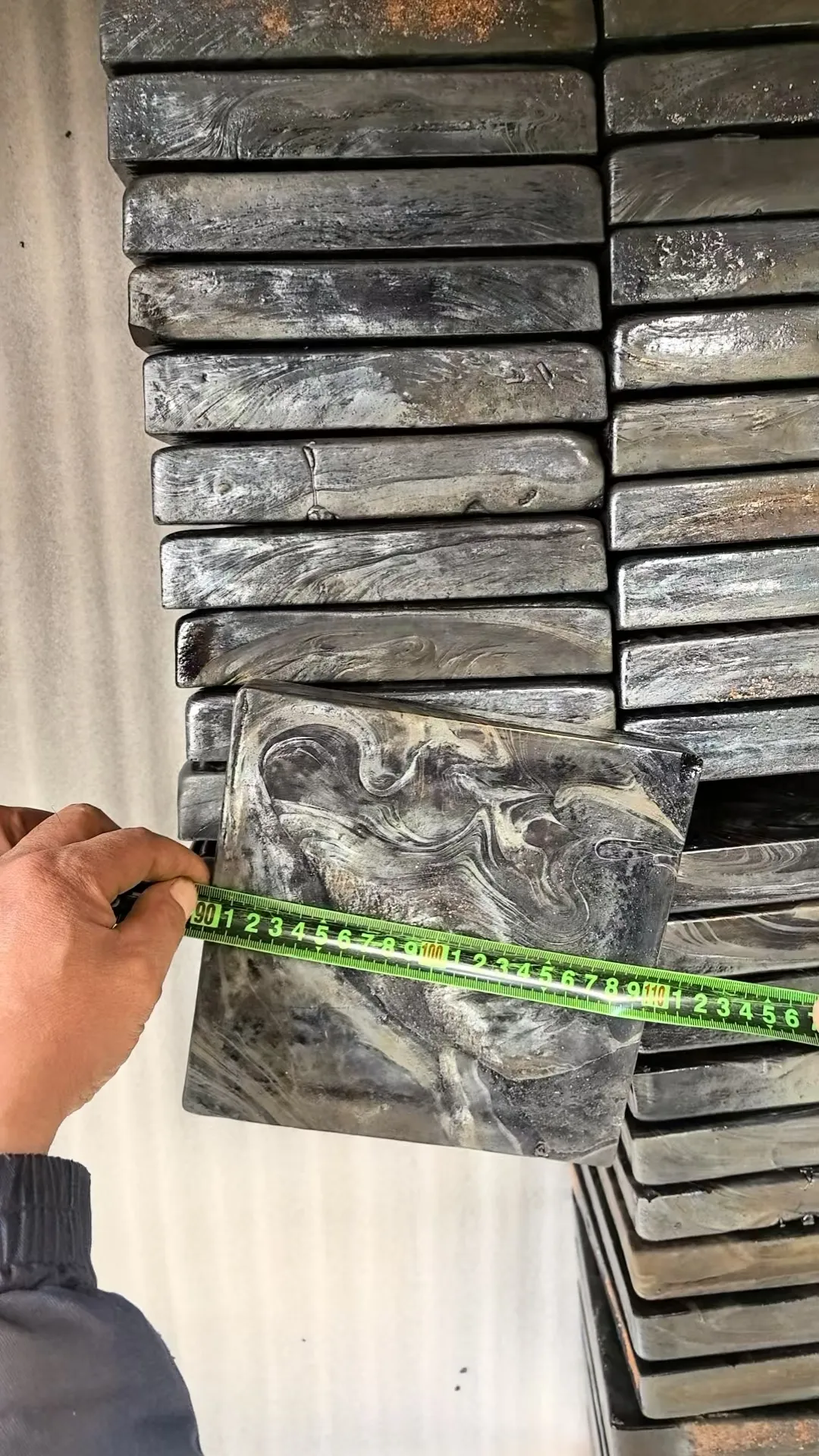
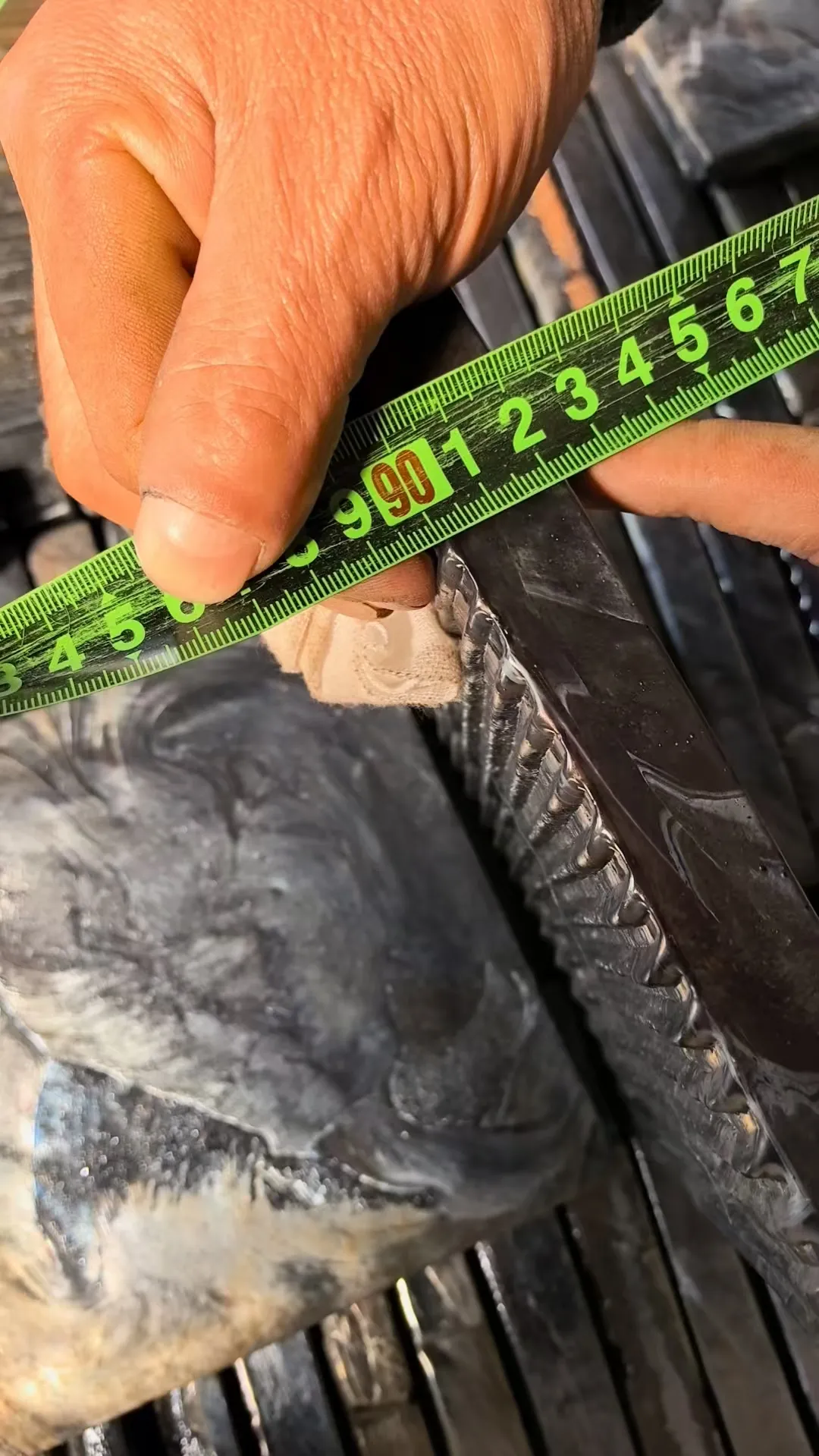
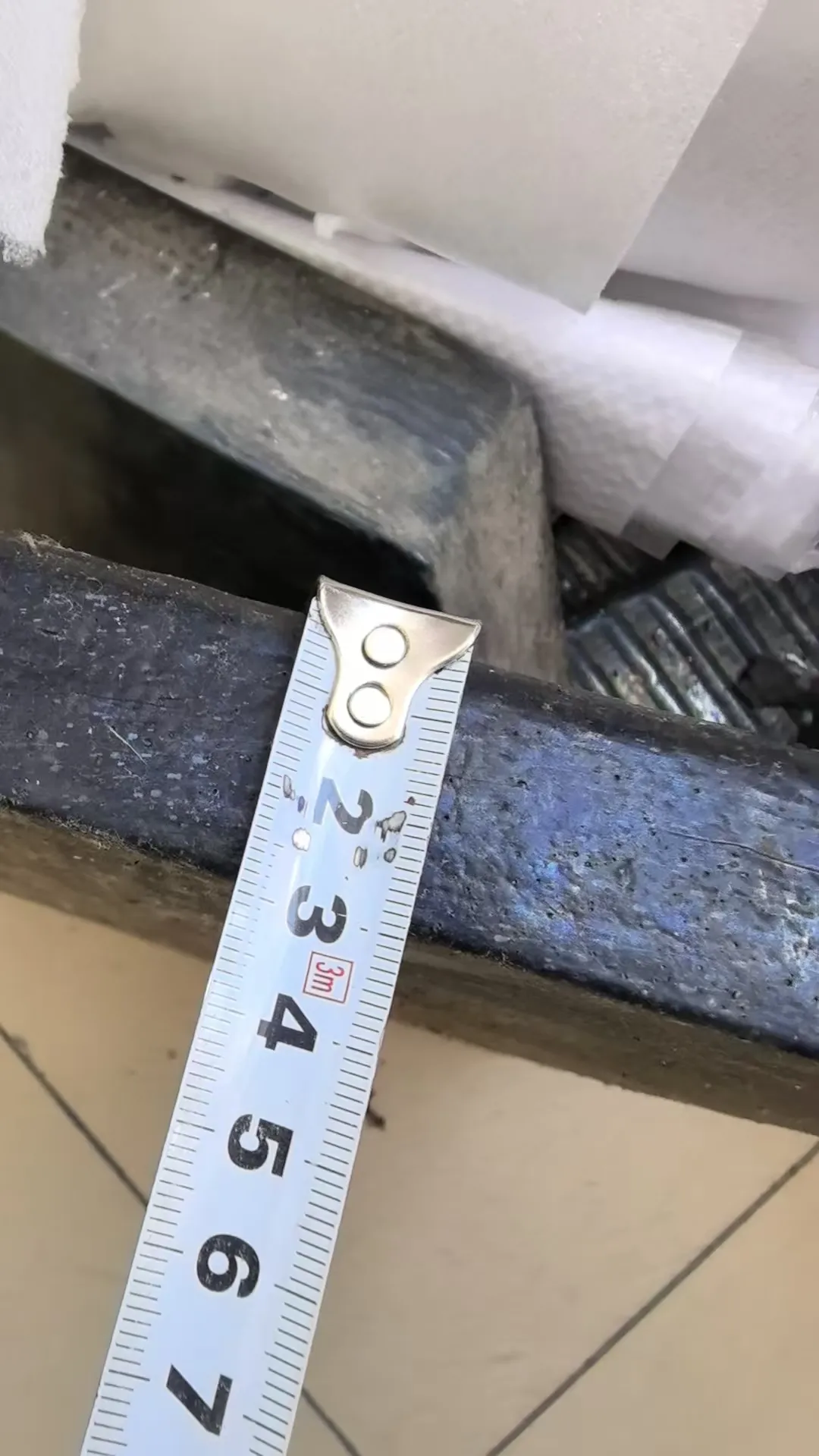
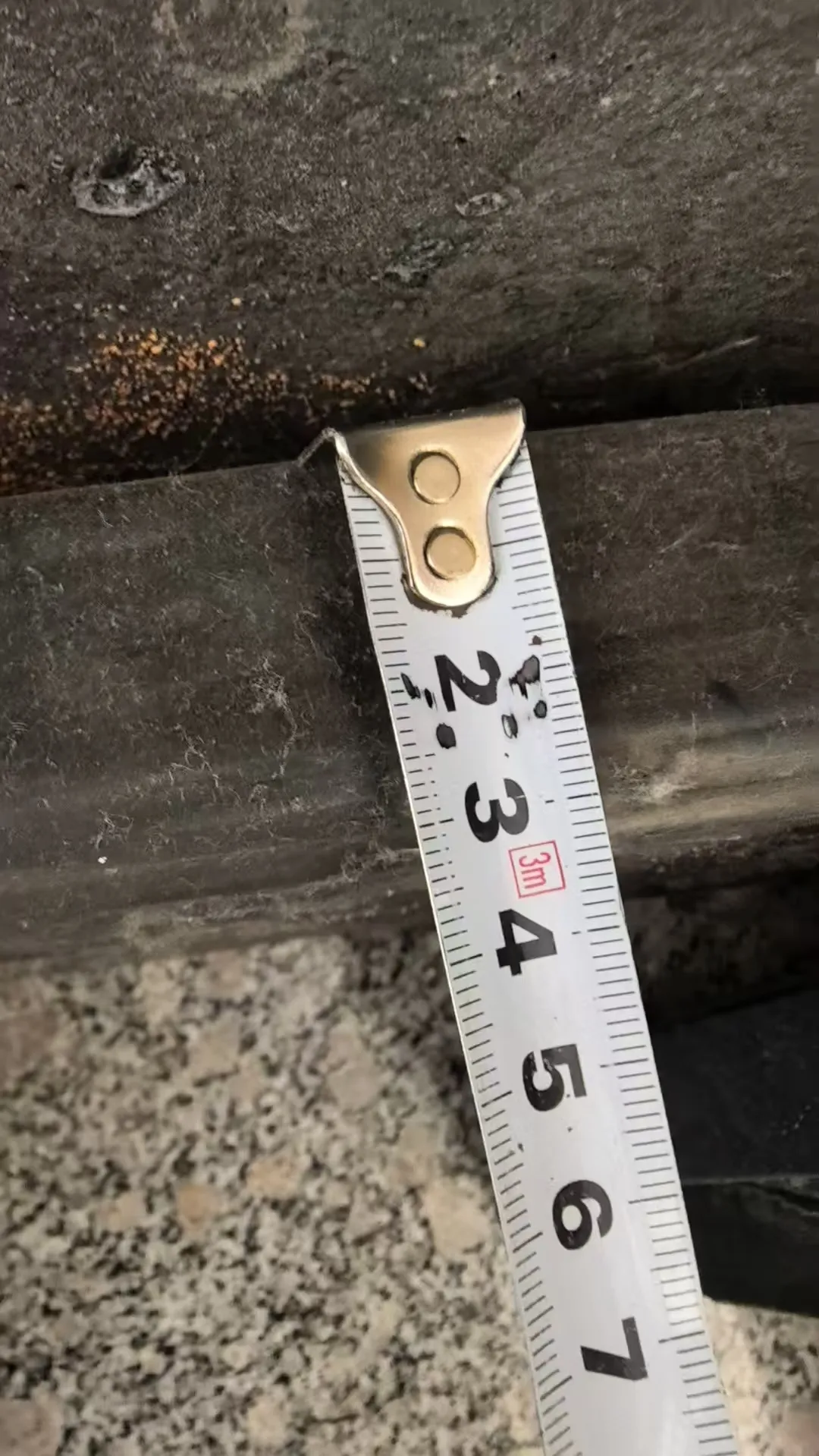
Basalt casting was used as a replacement for iron and steel, which were in short supply after WWII. The crushed natural basalt is heated back to molten lava and then poured into molds to make components such as pipes and floor tiles, which are incredibly hard-wearing and abrasion-resistant.
Cast basalt can be formed into a diverse range of shapes and surface patterns, including bespoke designs (min 325m²). During the cooling process, the surface of the material achieves a glass-like patina, with an iridescence and texture that is unique to each piece.
Cast basalt is produced by melting selected natural basalt – broken into sizes of 20–50 mm – in shaft furnaces at temperatures around 1,300°C, followed by casting into the desired molds. Of fundamental importance is the subsequent tempering process, in which the molten basalt forms uniform, spherulitic crystals that contribute to its physical properties such as extreme hardness and abrasion resistance.
Cast basalt is the most frequently used wear protection material. The main areas of application are the wear-resistant linings for:
The walls and outlets of bunkers, silos, and other tanks used for the storage of bulk materials are subject to strong abrasive wear. Strong friction wear occurs when emptying is compounded by impact wear during the filling process.
A wear-resistant lining with hexagonal or rectangular cast basalt tiles has proven to be a successful and economical solution. Special form pieces are manufactured for the flutes and the bunker saddles. Circular bunkers and silos are lined with radial, rectangular, or hexagonal form pieces that precisely match the required circumference.
To improve adhesion, corrugated wire mesh is spot-welded to the vertical steel walls.
The transport of abrasive media, in fact of virtually all granular materials, in enclosed pipelines has the advantage that it is non-polluting, generates neither dust nor smell, and even saves valuable space. Completely lined pipes can be manufactured with the following maximum lengths:
Cast basalt lined piping is extremely wear-resistant and is used wherever highly abrasive materials are conveyed pneumatically or hydraulically, for example:
Everything you need to know about Basalt Tiles
Basalt is the new miracle fire-protection material. It is made from volcanic rock and can withstand 2500 degrees for an unlimited time while having 3 times the tensile strength of steel.
Compared with traditional concrete, basalt-fiber-reinforced concrete has the advantages of higher tensile strength and less cracking.
Cast Basalt is a naturally occurring basalt-rock wear-resistant material. Offering superb abrasion resistance, this mineral is quarried, melted, cast, and annealed to form a fine-crystallized glass-ceramic of extreme hardness that resists erosion. Cast Basalt is supplied in pipe and tile form and provides an excellent hard-wearing surface for corrosive wear and abrasion protection of equipment.
Cast basalt tiles are known for their excellent wear resistance and are commonly used in applications where abrasion and corrosion resistance are critical, such as in pipelines, chutes, hoppers, and other high-wear environments. Having these tiles in stock allows for a quick response to customer demands and efficient fulfillment of orders.
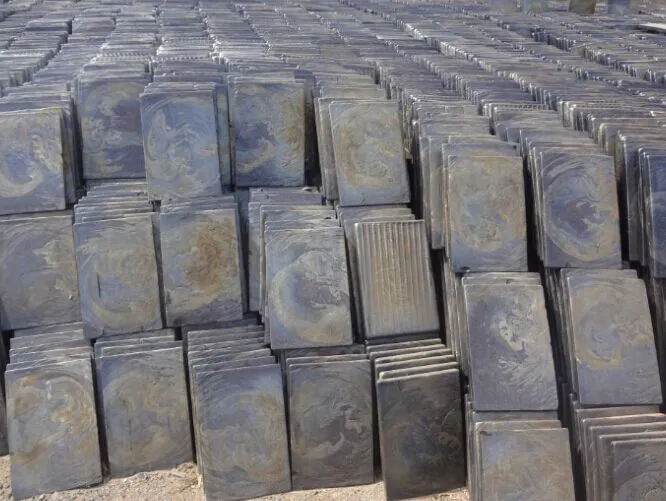
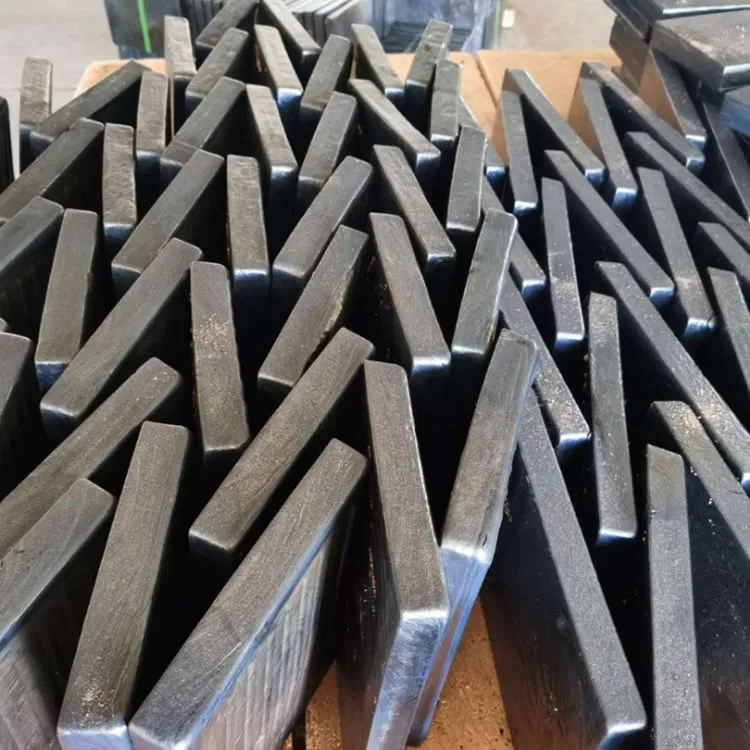
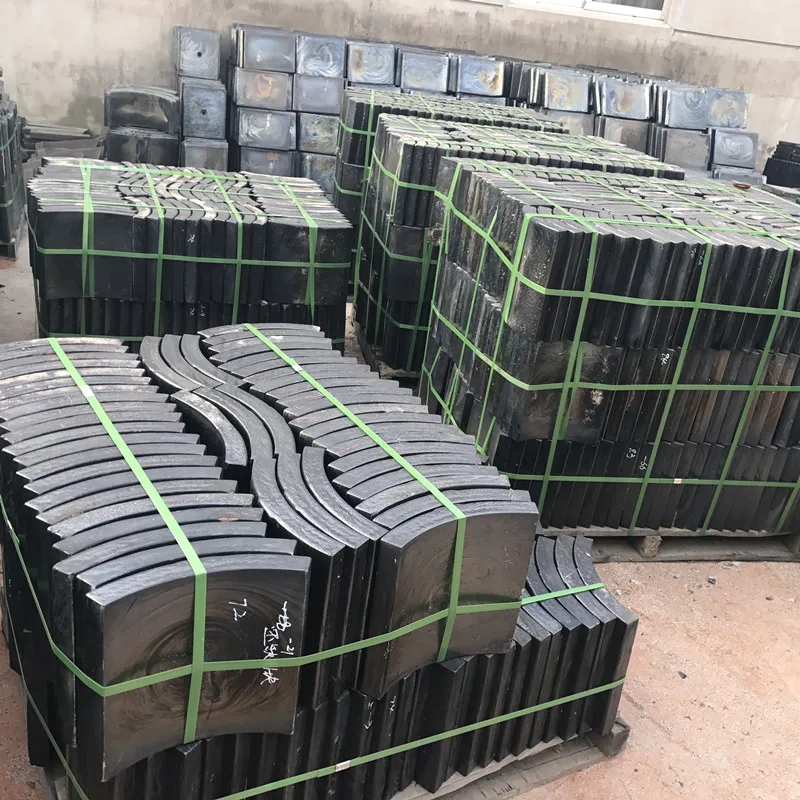
Hard & Compact Smooth & Inner Withstands High-Abrasion & Corrosion In any of the process industries especially Sled and Cement corrosion and abrasion lead to significant downtime of the plant. Further, the useful life or the equipment itself may get impaired because of the high abrasive nature of the materials being used. Thus, ‘wear mechanism’ results in hut down, replacement, etc., which is costly, resulting in loss to tilt: tunic of millions of dollars.
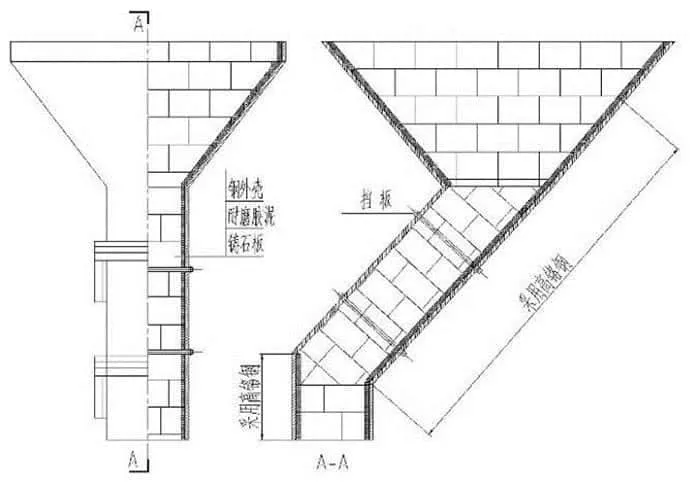
Basalt tiles can be placed and jointed in cement or specially-defined bonding agents, as demanded by the intended application. Basalt tiles can be provided with a central hole that is countersunk for individual bolting, or as ready-made liner plates and pipes.
Cast basalt tiles are mainly used in thermal power plants, steel mills, mines and other parts with heavy wear, such as raw coal bunkers, mine bins, coal unloading trenches, hoppers, ore troughs, flotation machines, chutes and other parts.
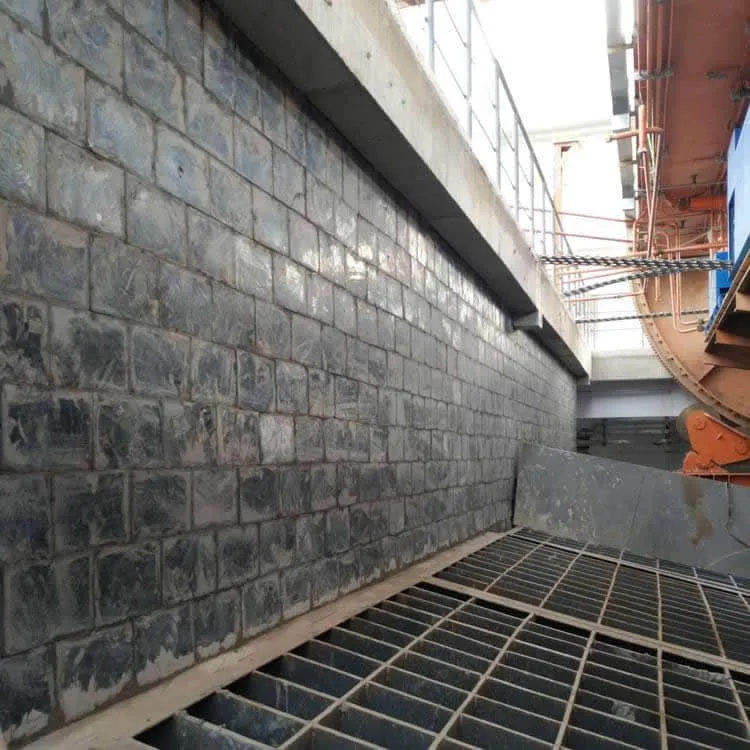
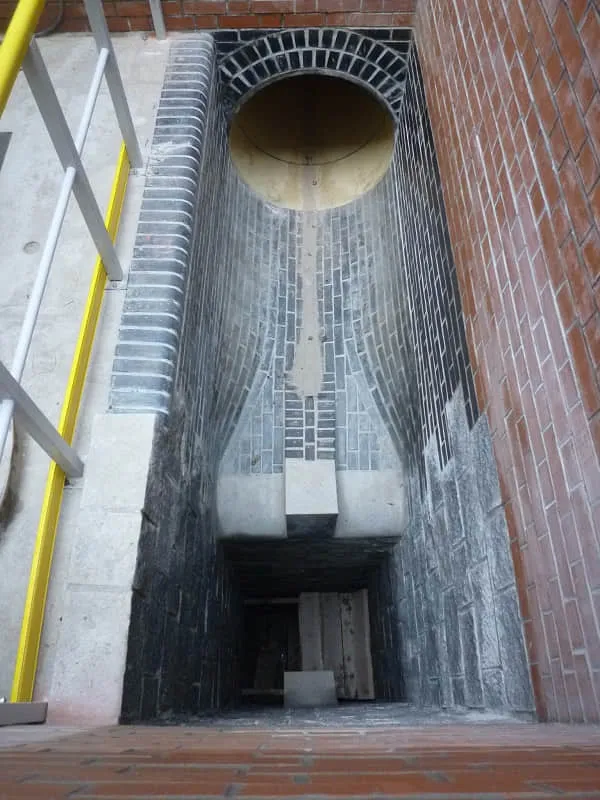
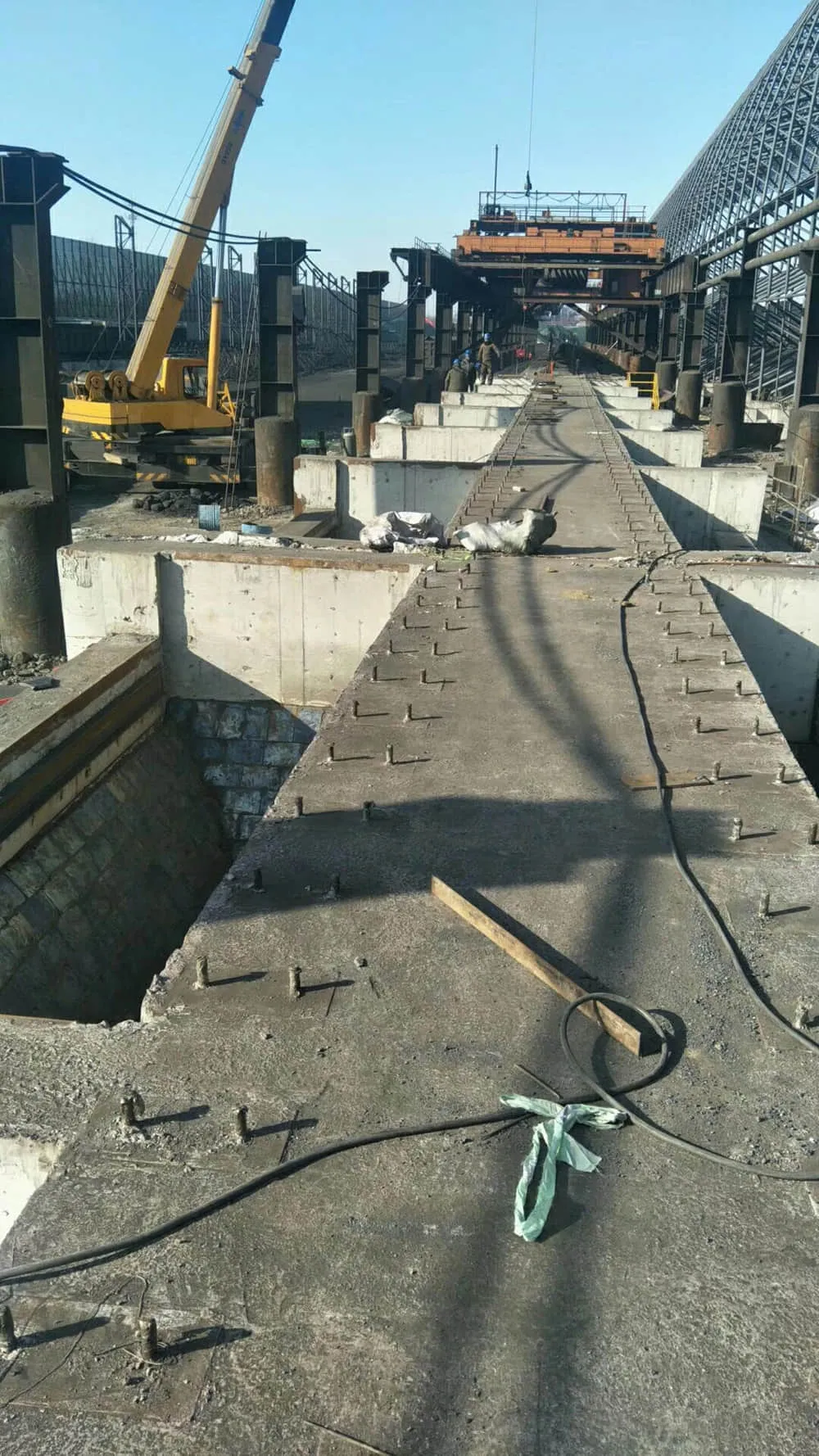
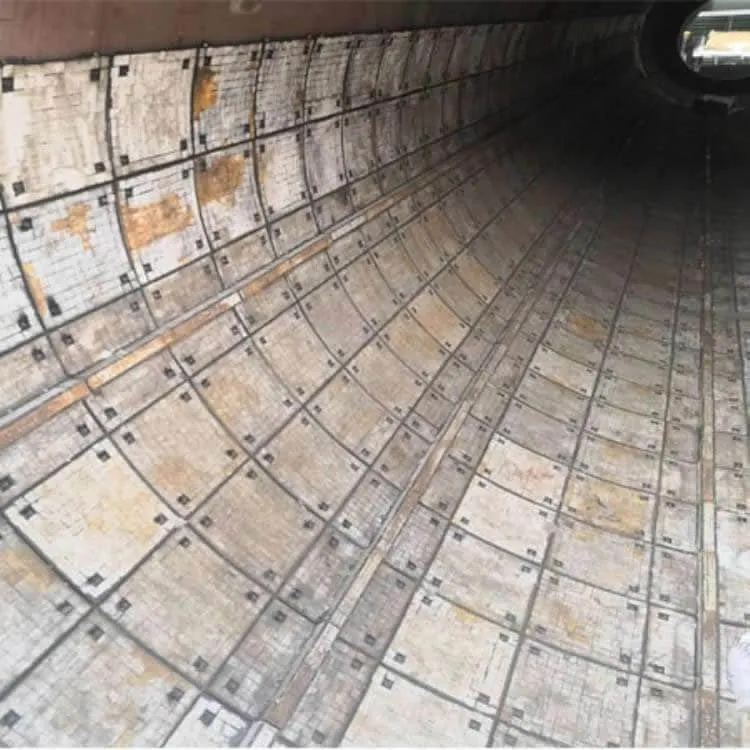
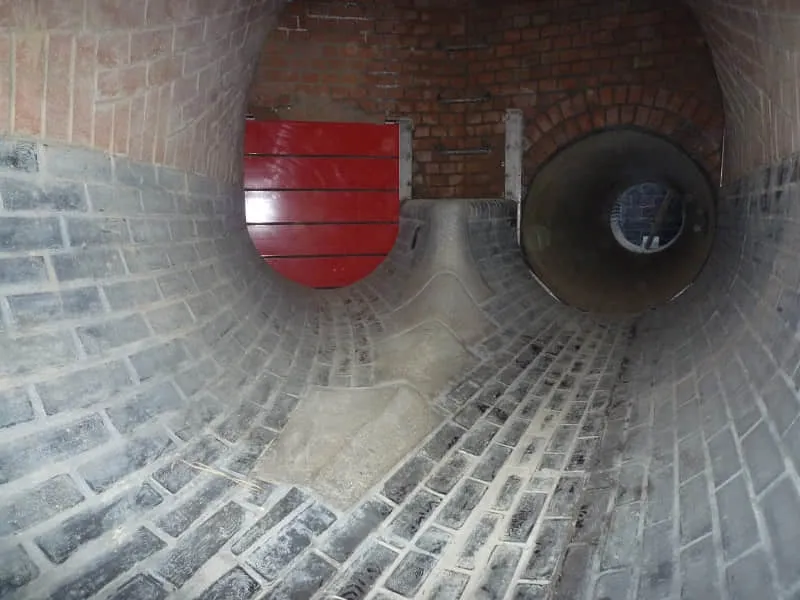
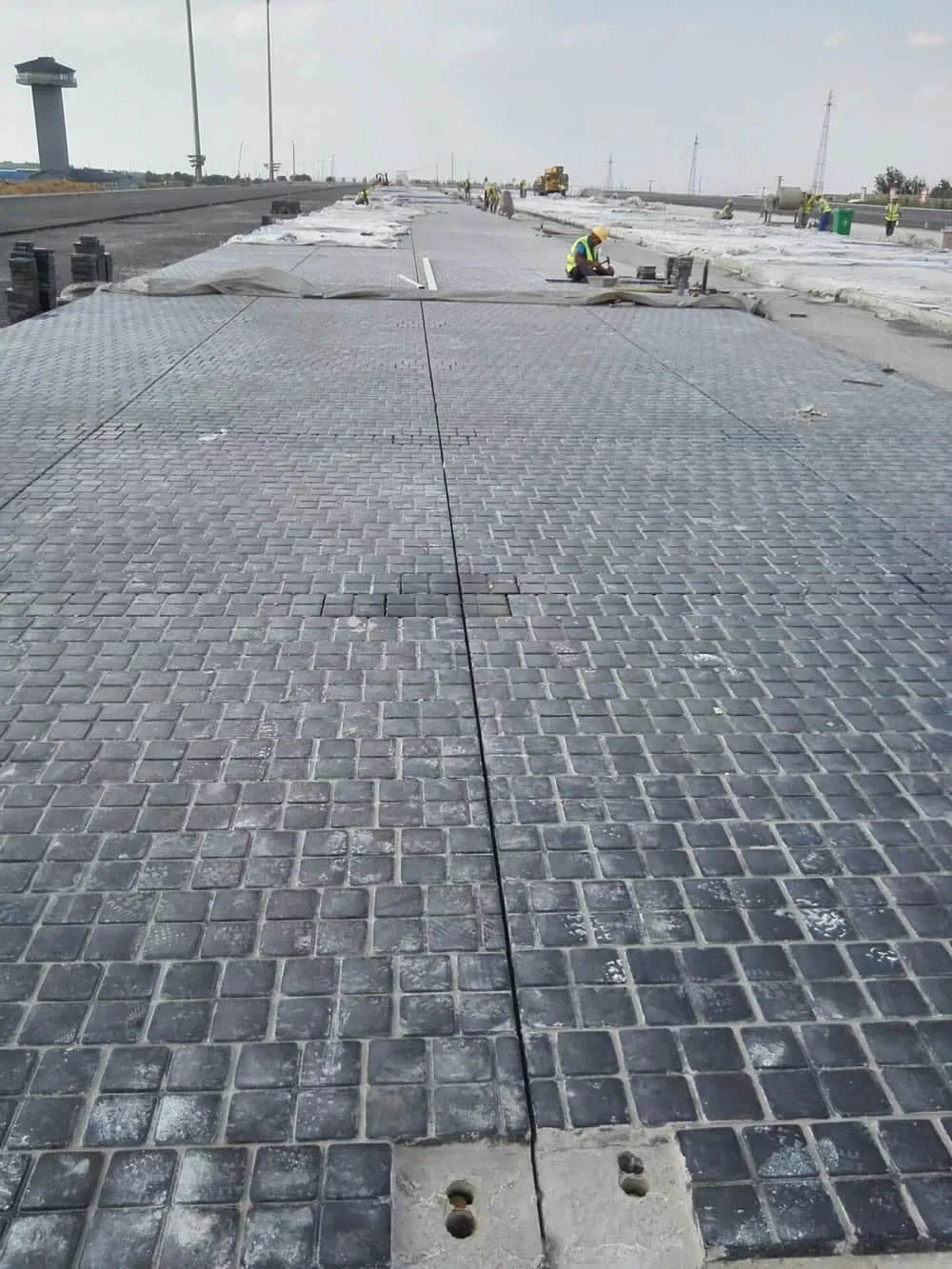
Used for Automotive Brake Testing Grounds
These very hard tiles are made for very heavy industrial use, but also feature a beautiful metallic sheen. Originally used for sewerage systems or piping pieces, these pavement tiles are made by melting natural basalt and casting it into metal moulds.
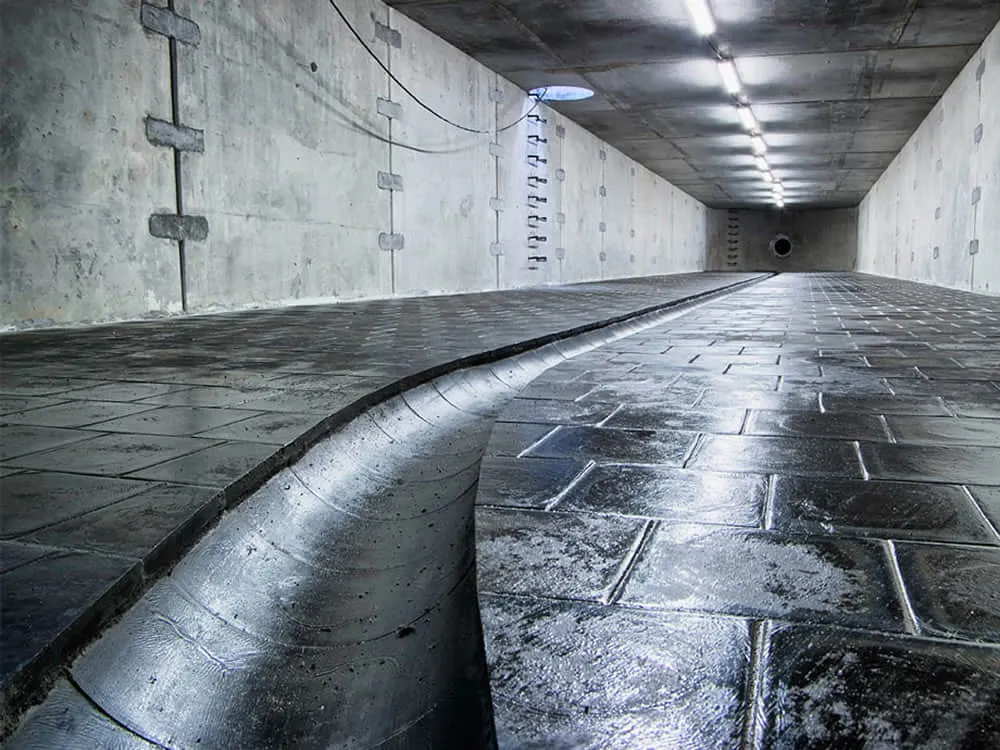
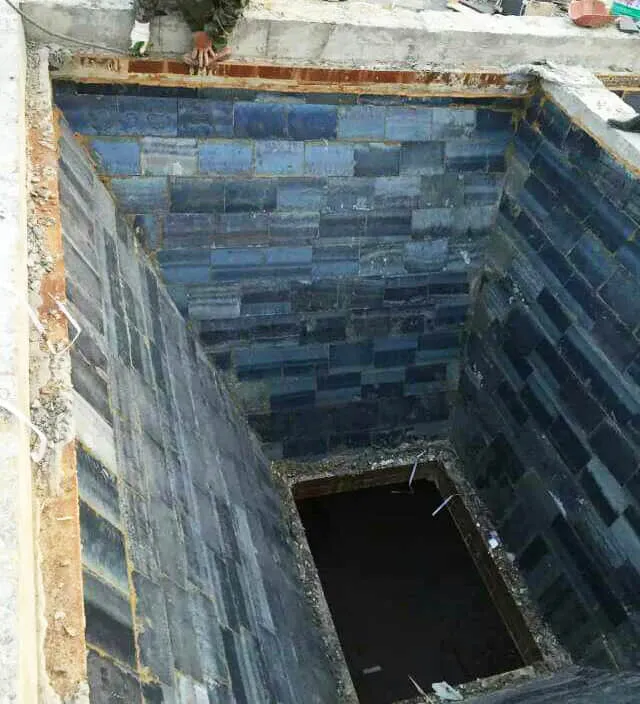
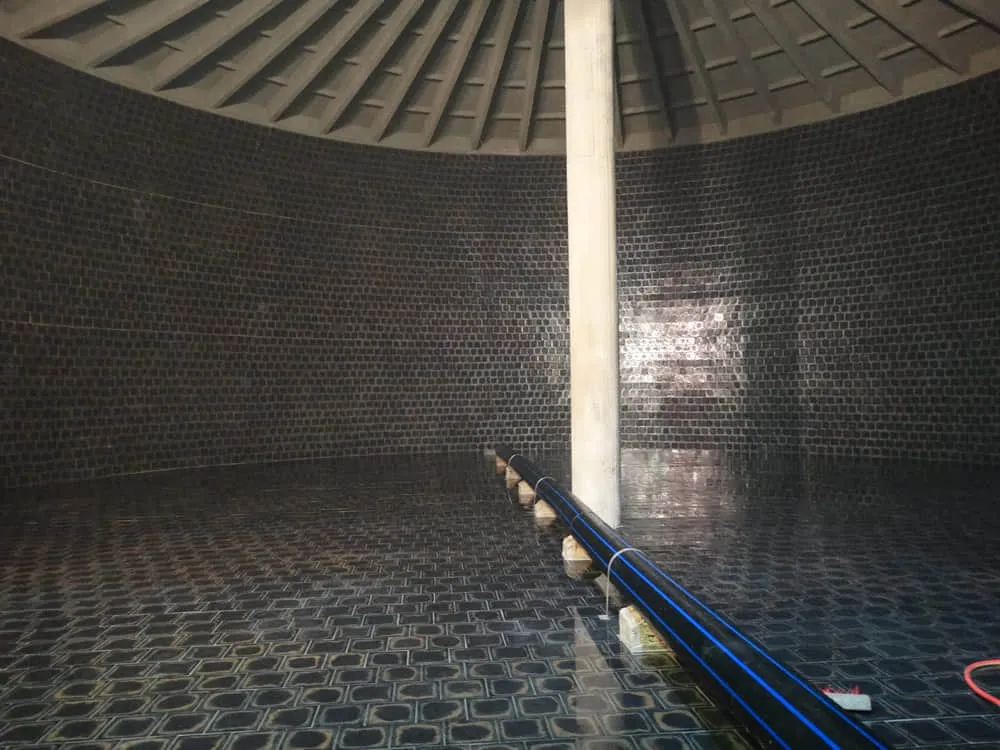
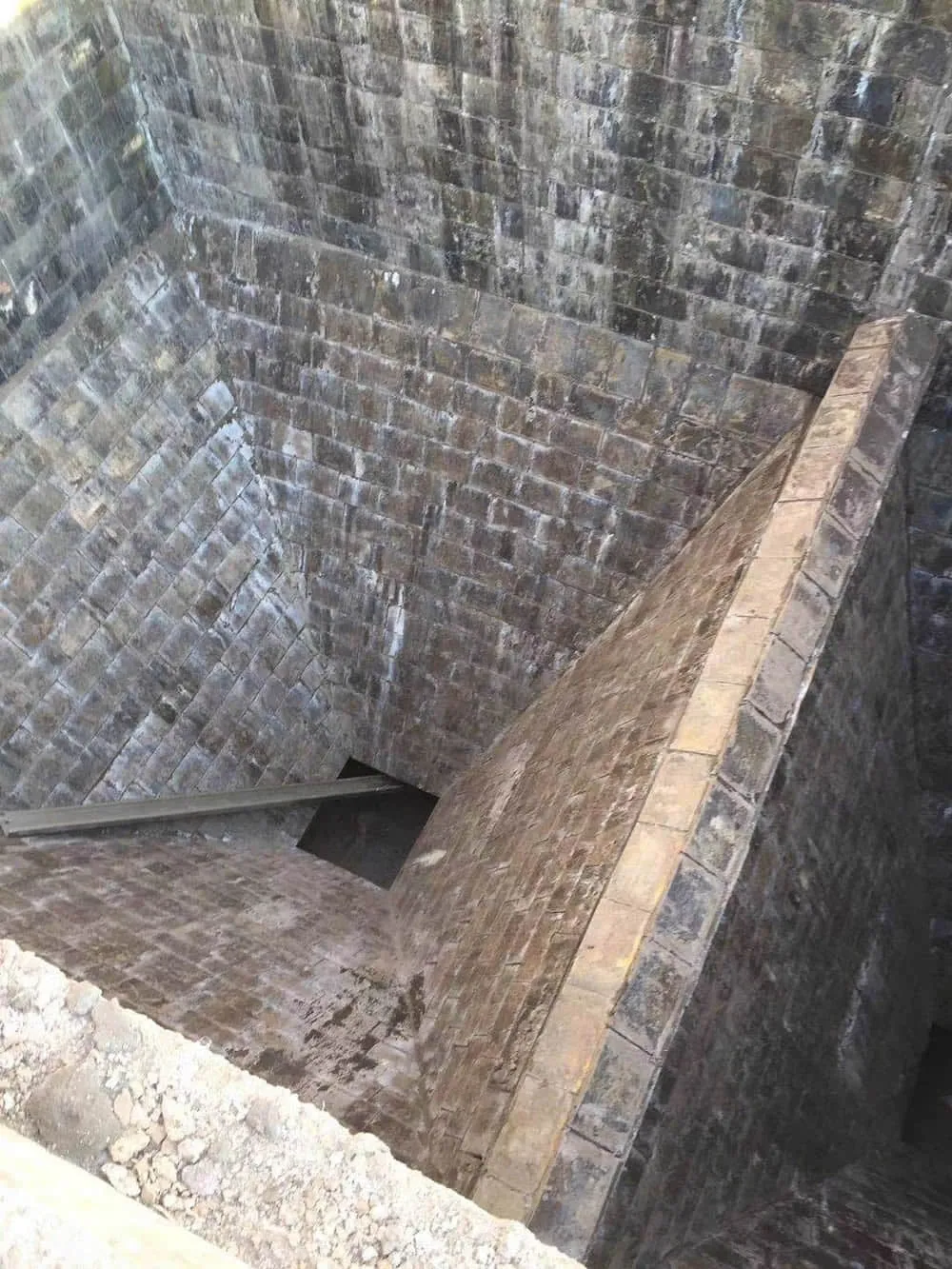
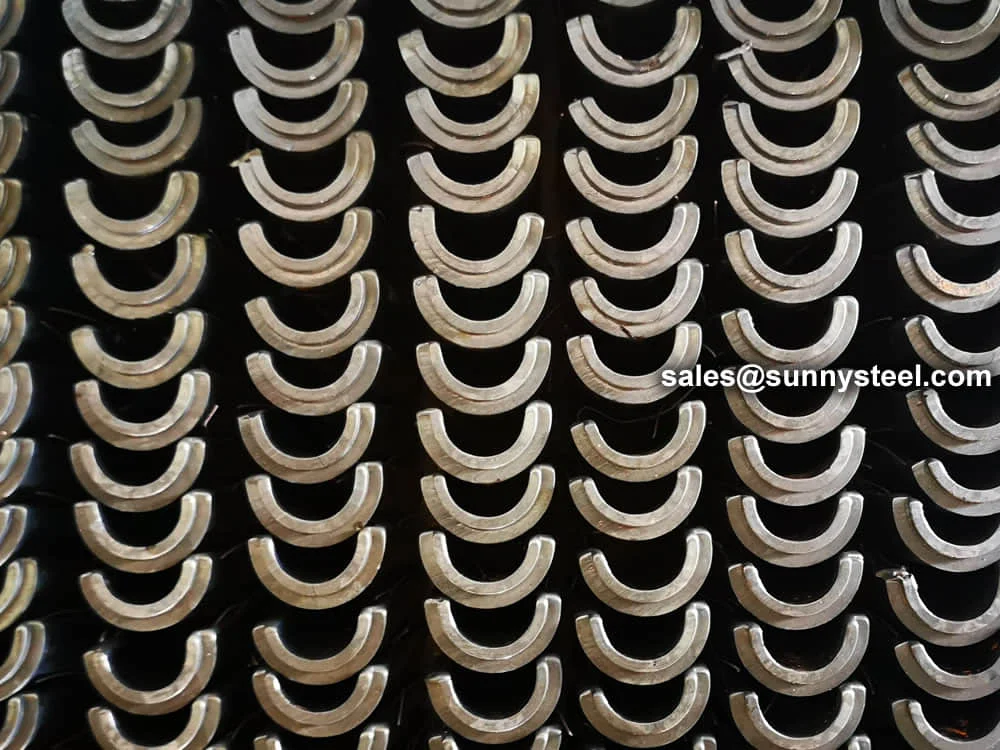
Cast basalt pipe shields deliver high-strength wea...
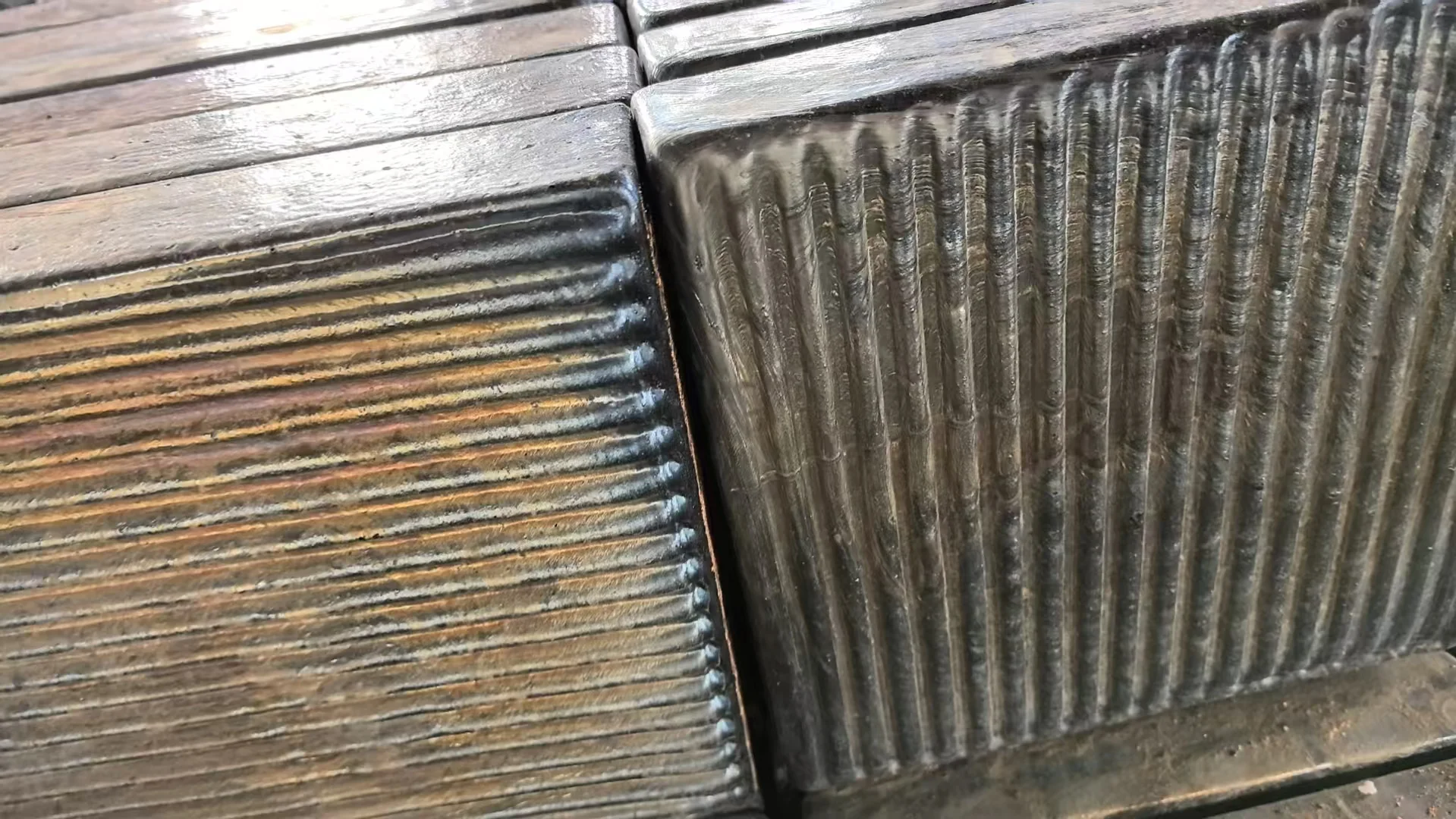
Cast basalt tiles offer extreme hardness, excellen...
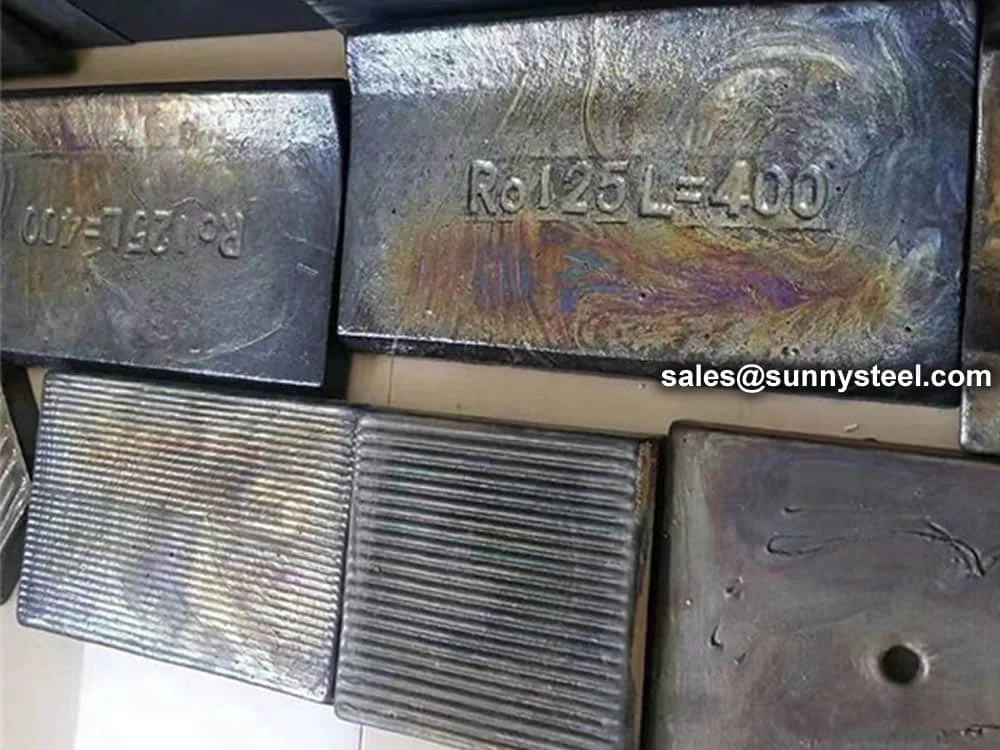
Molten basalt linings engineered for pipes, chutes...
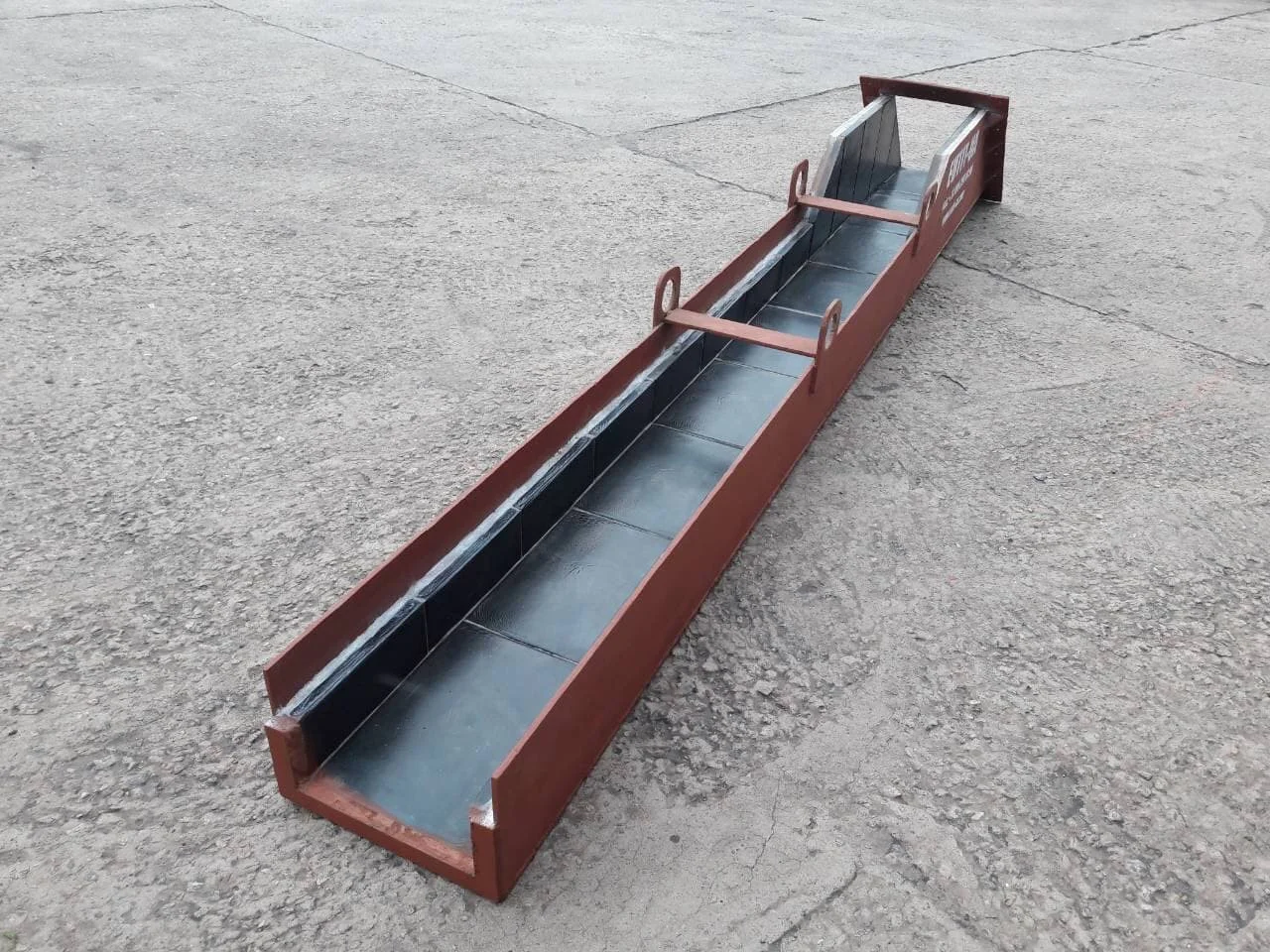
Highly durable basalt cast lining with superior ab...
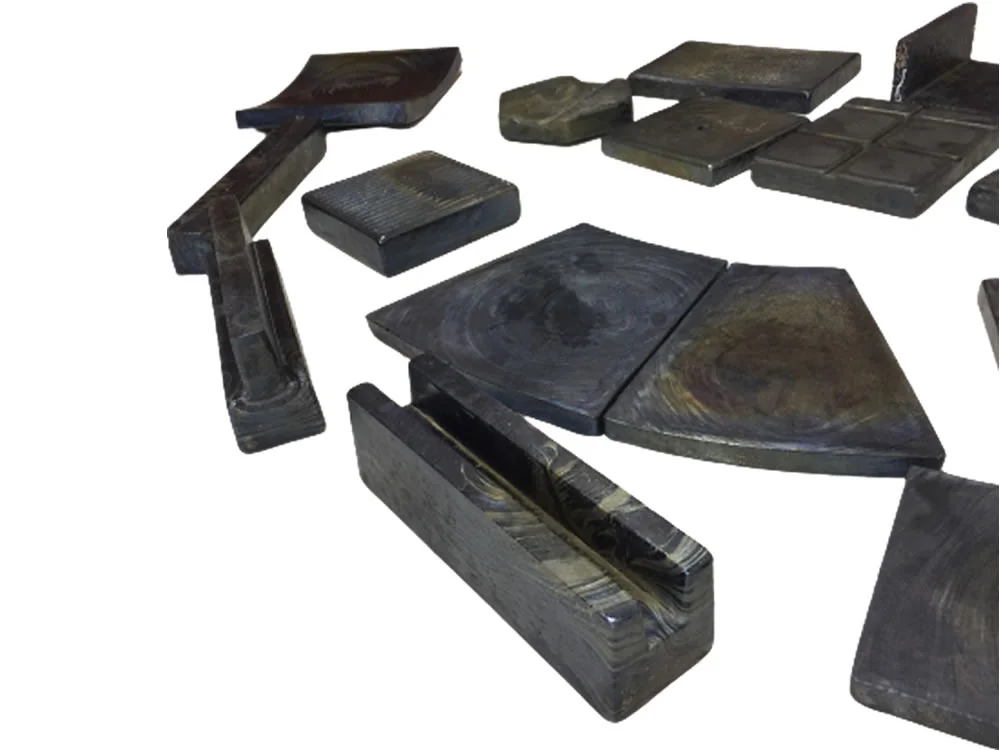
Durable basalt lining tiles for bunker walls, chut...
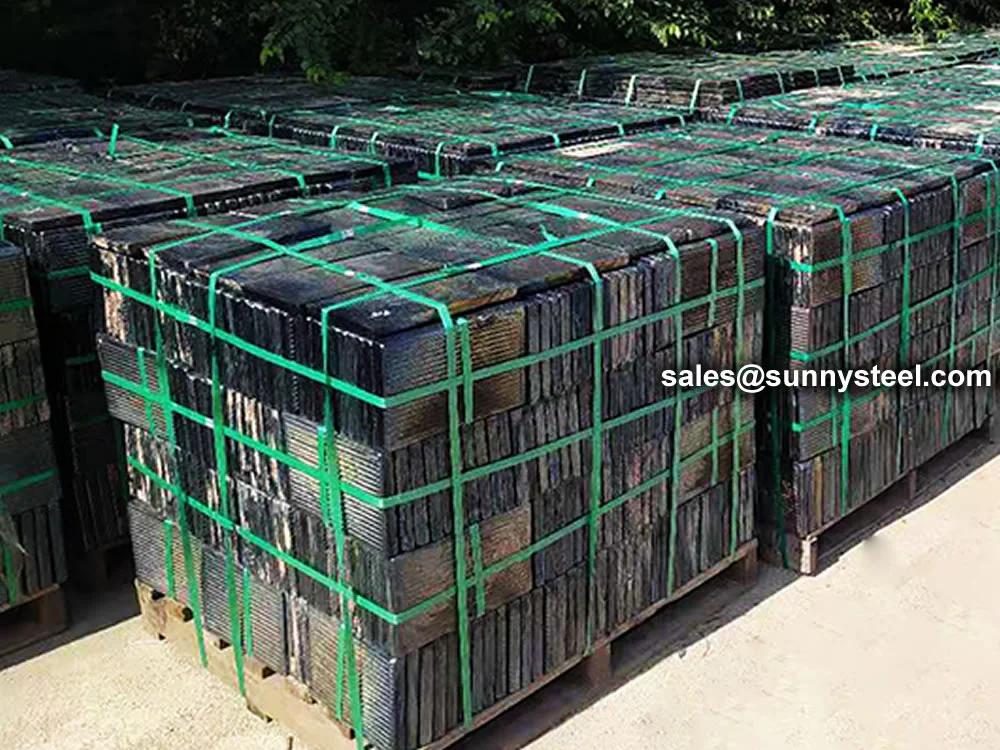
Standard cast basalt tiles offer robust wear, corr...